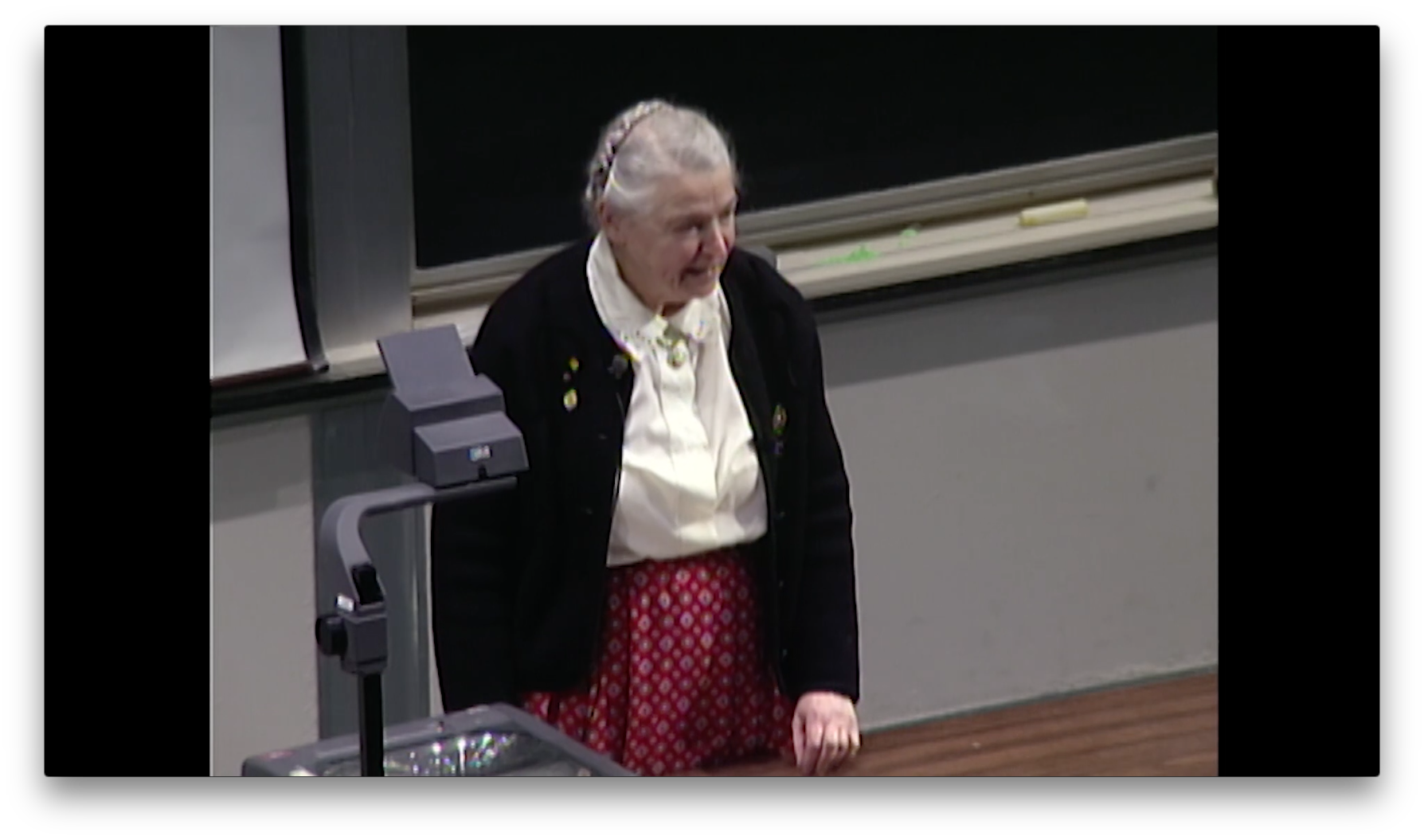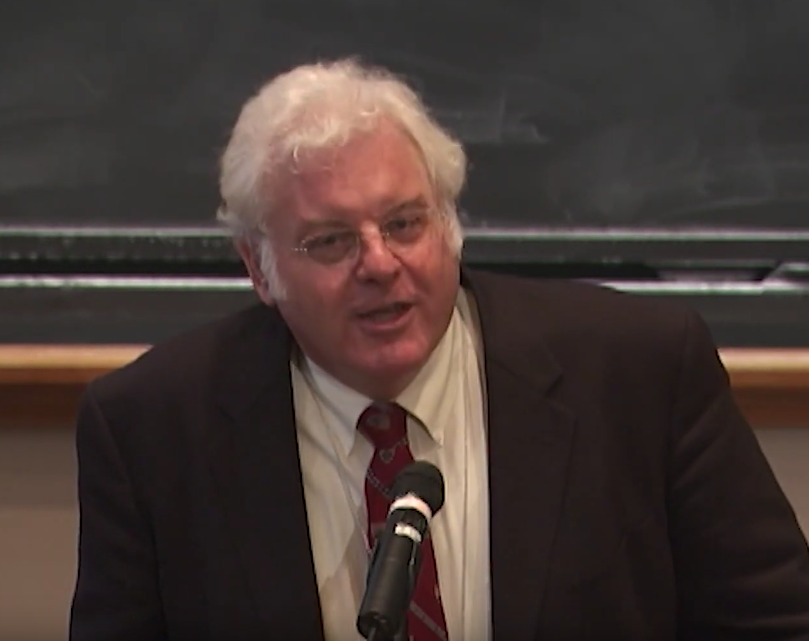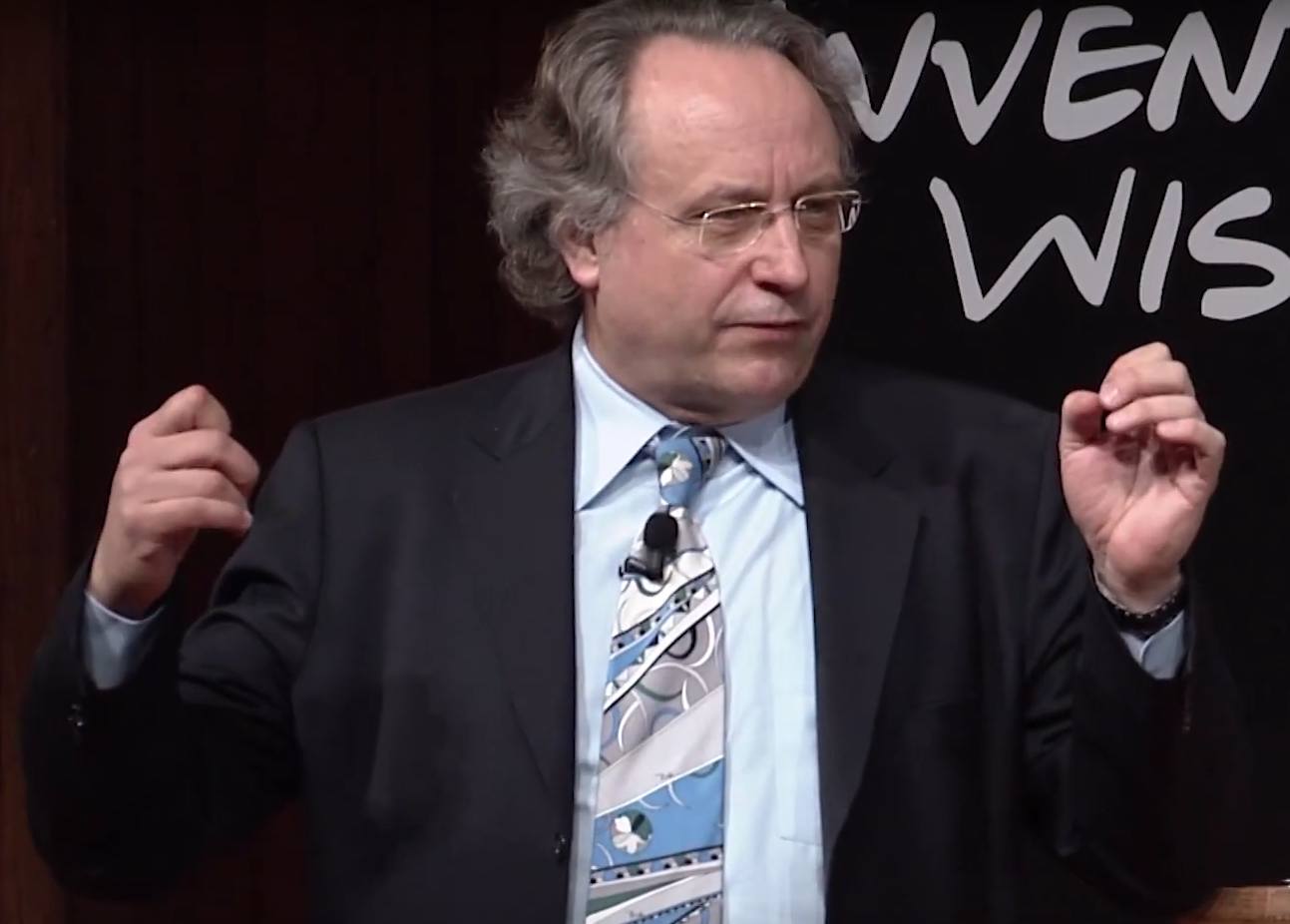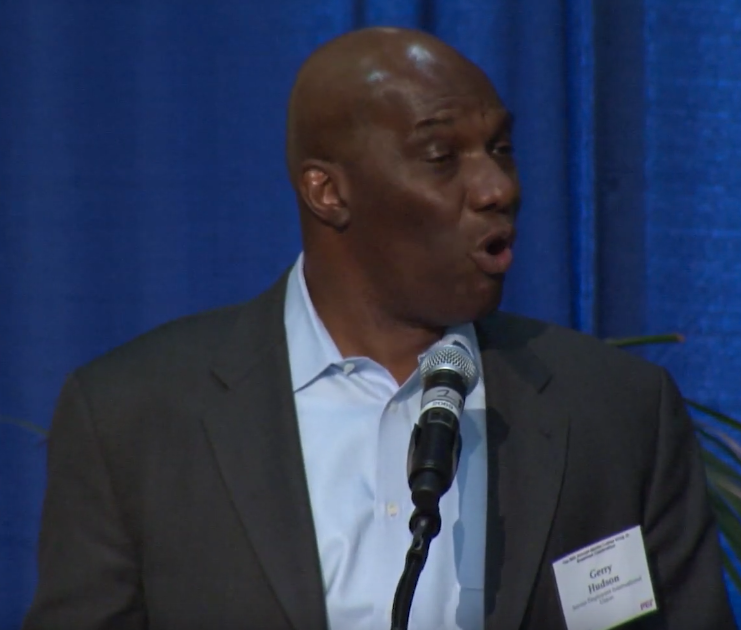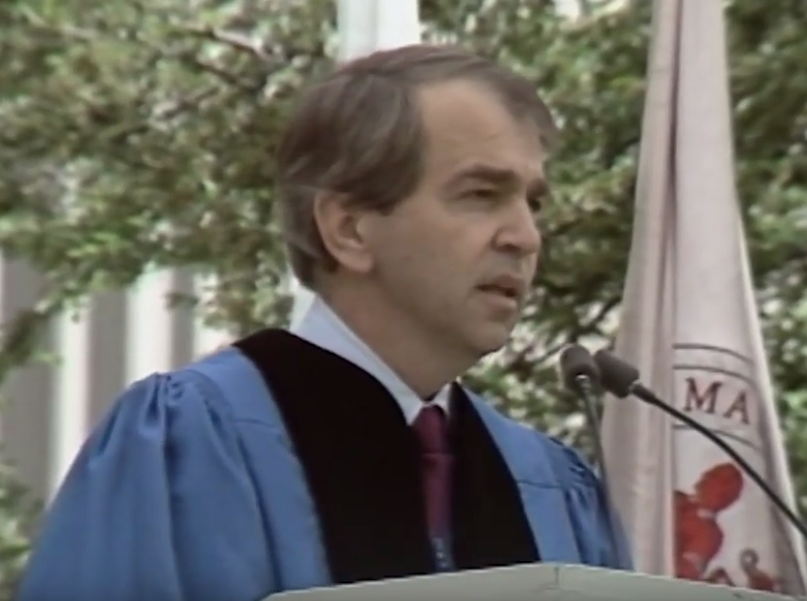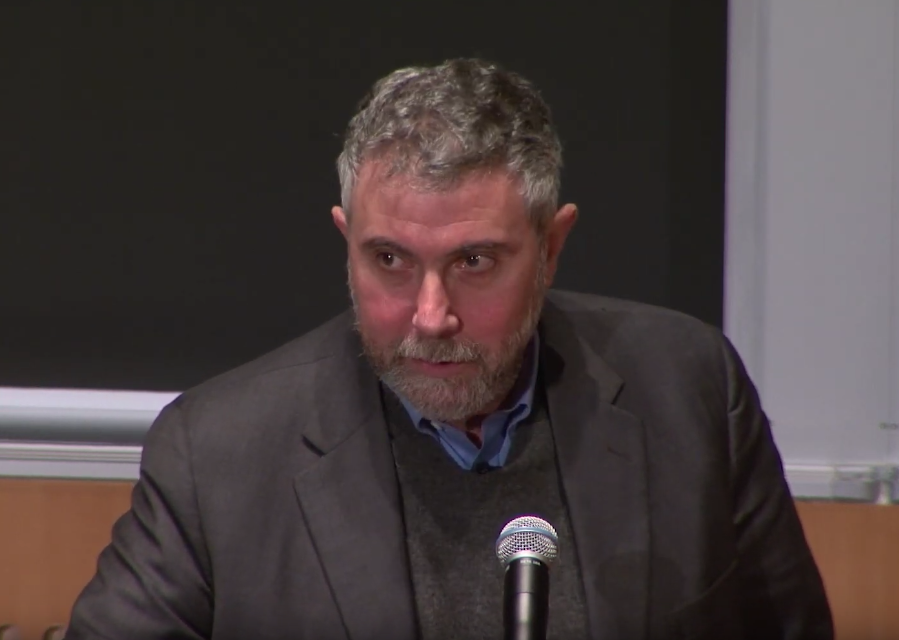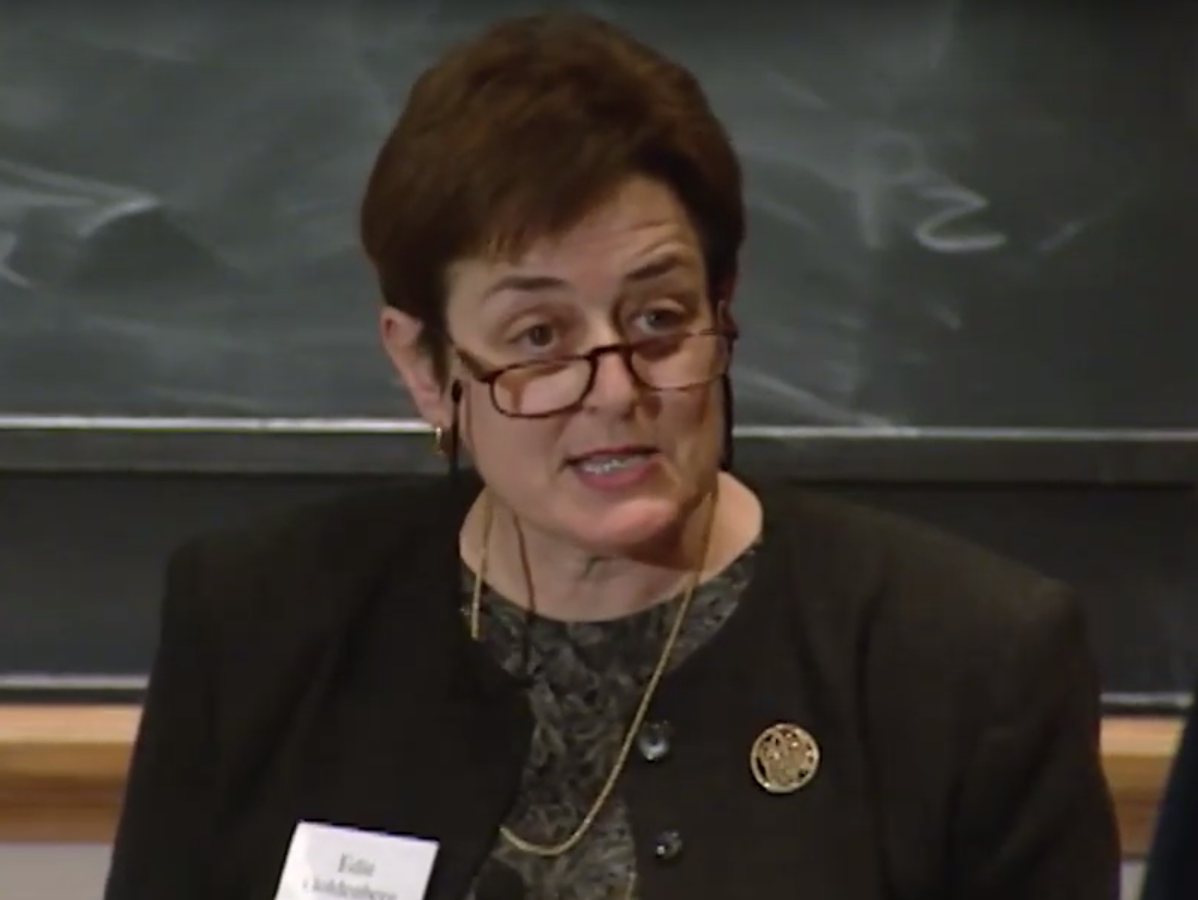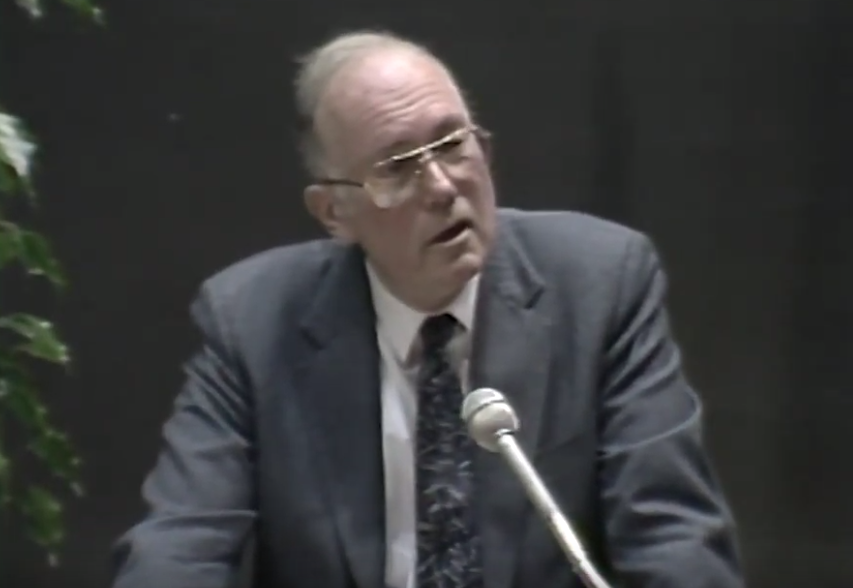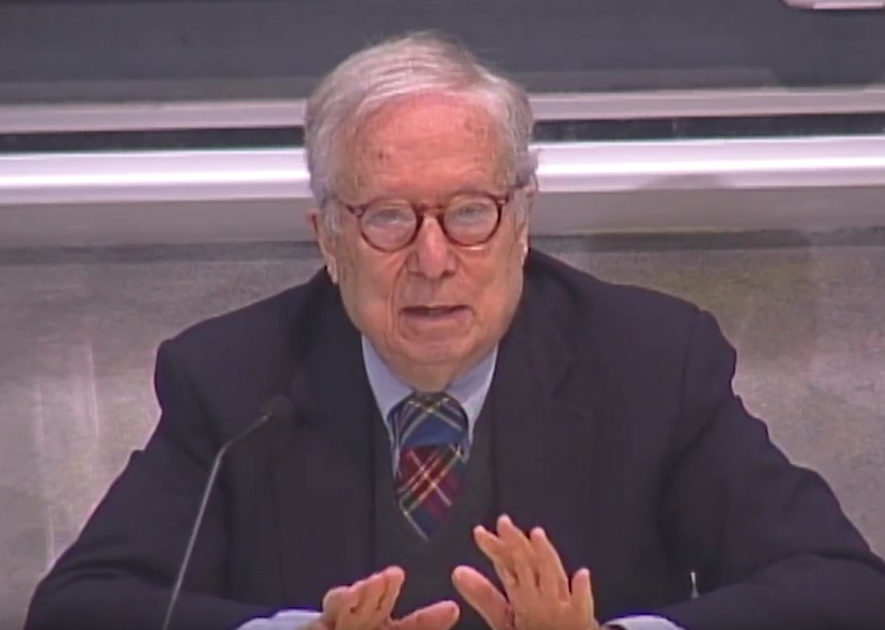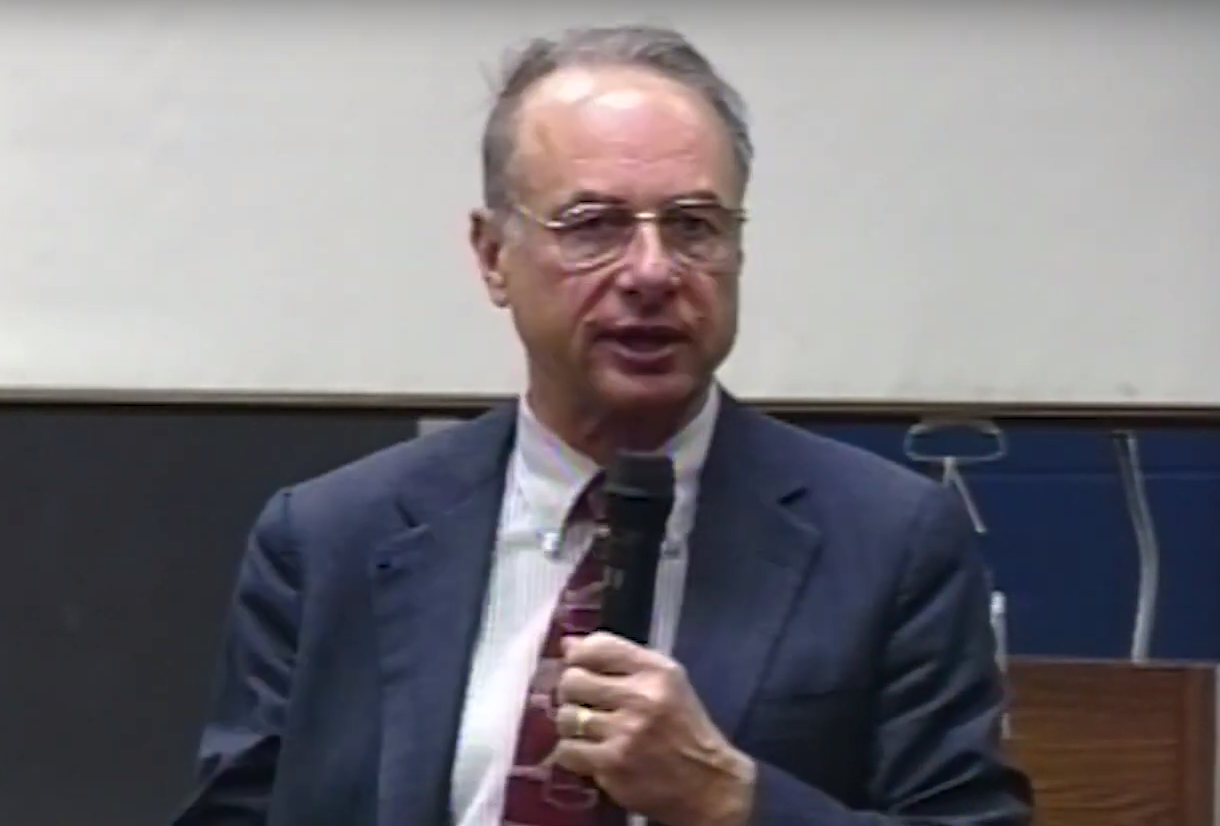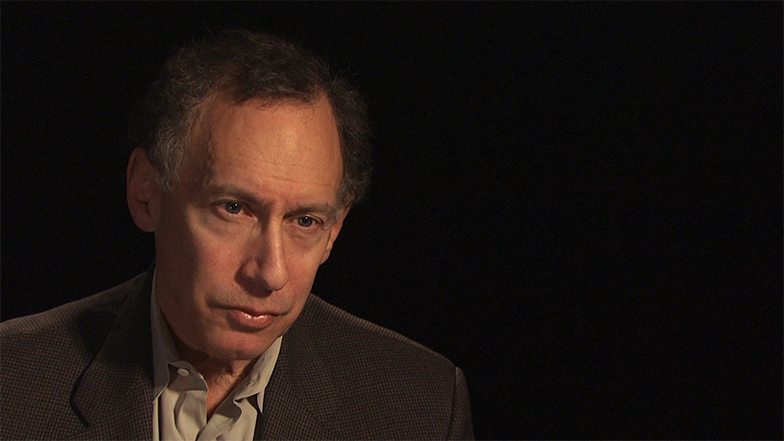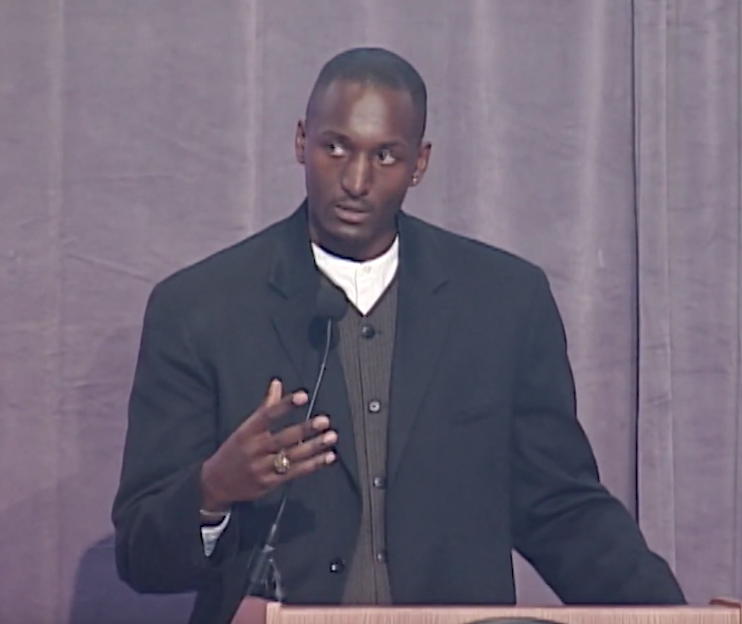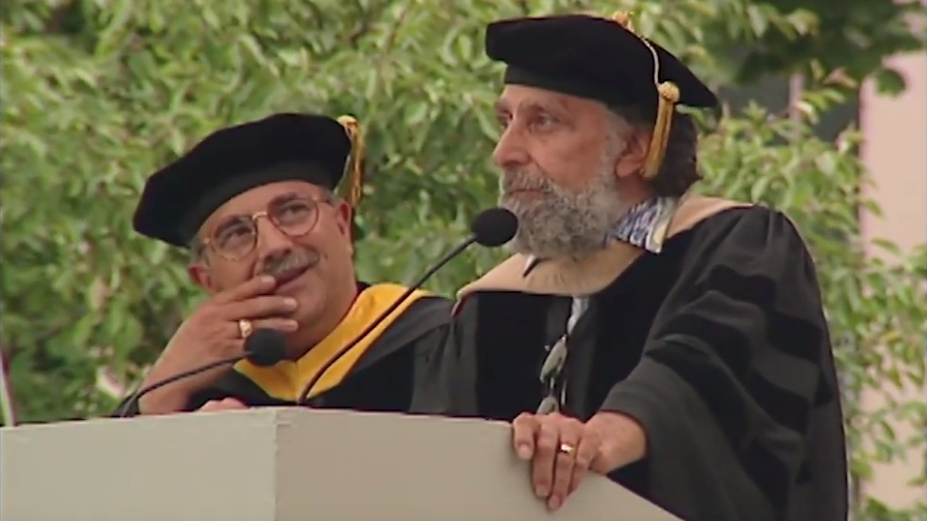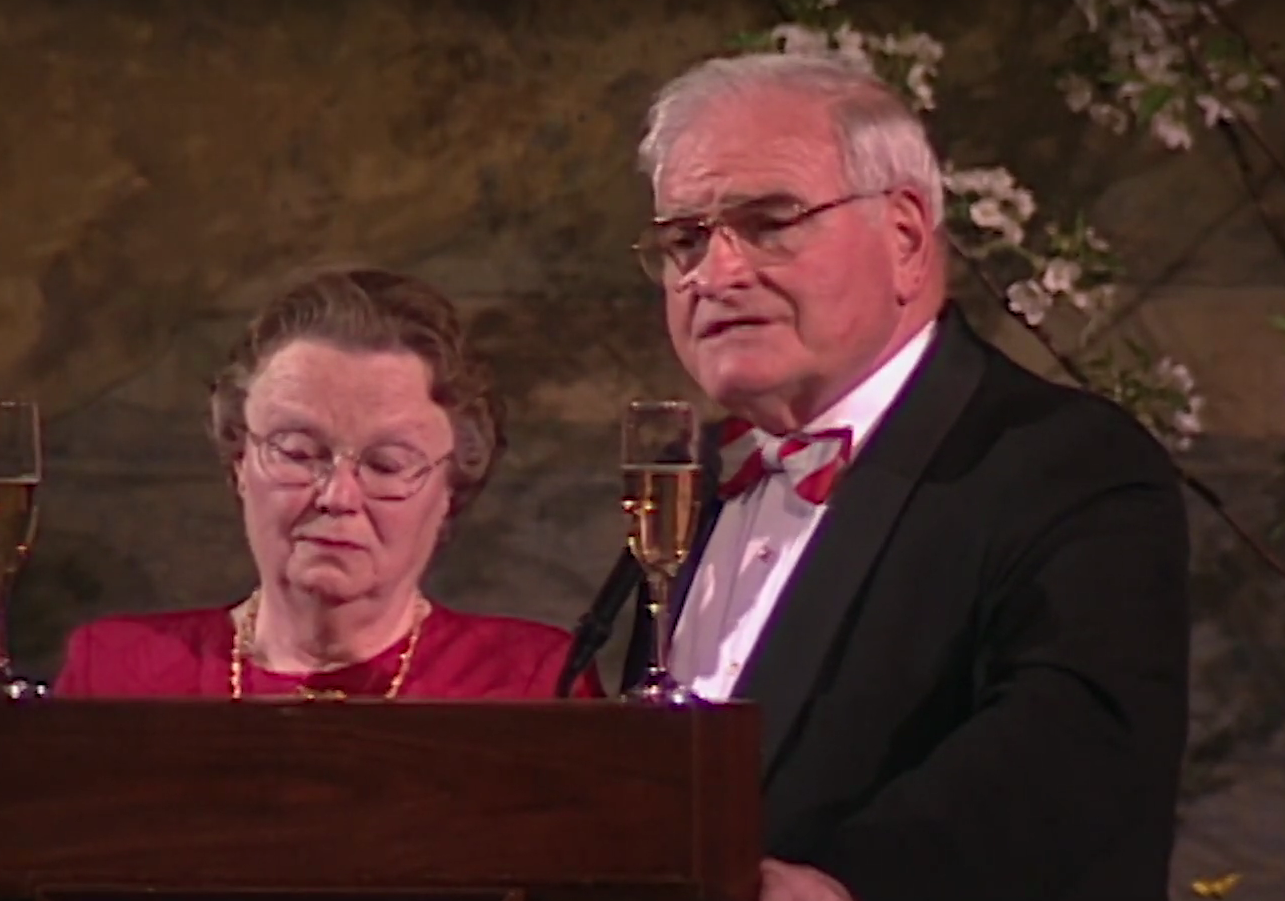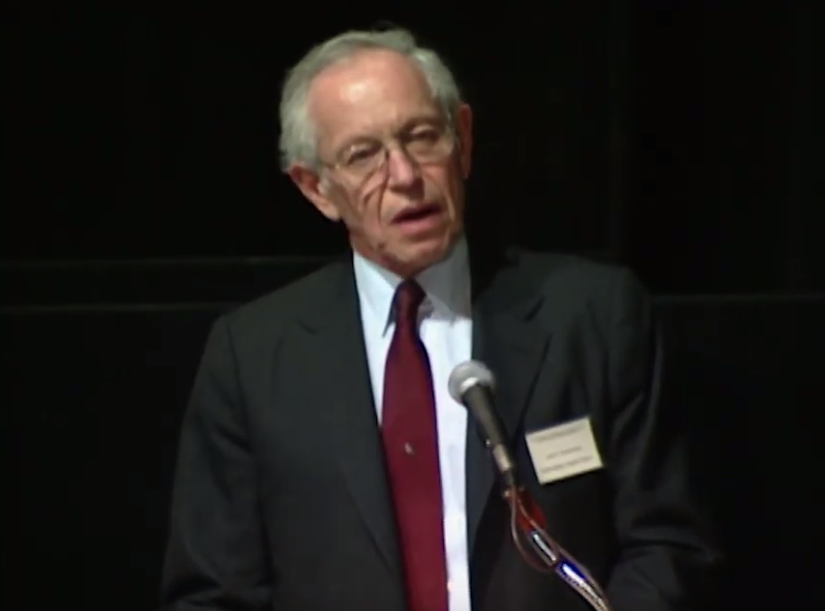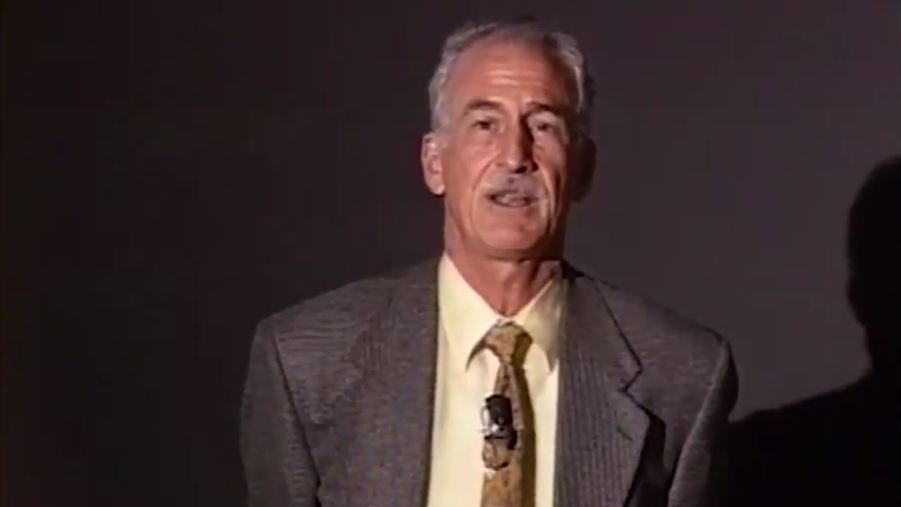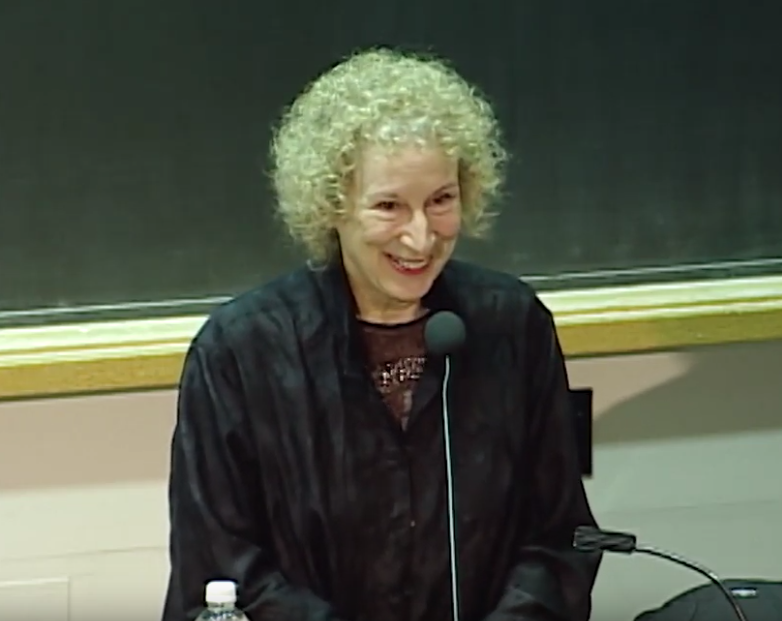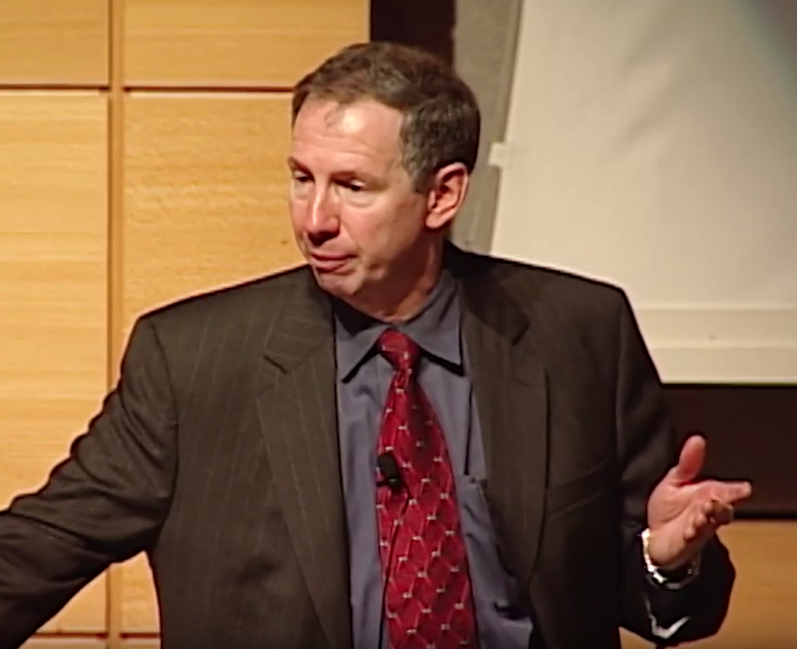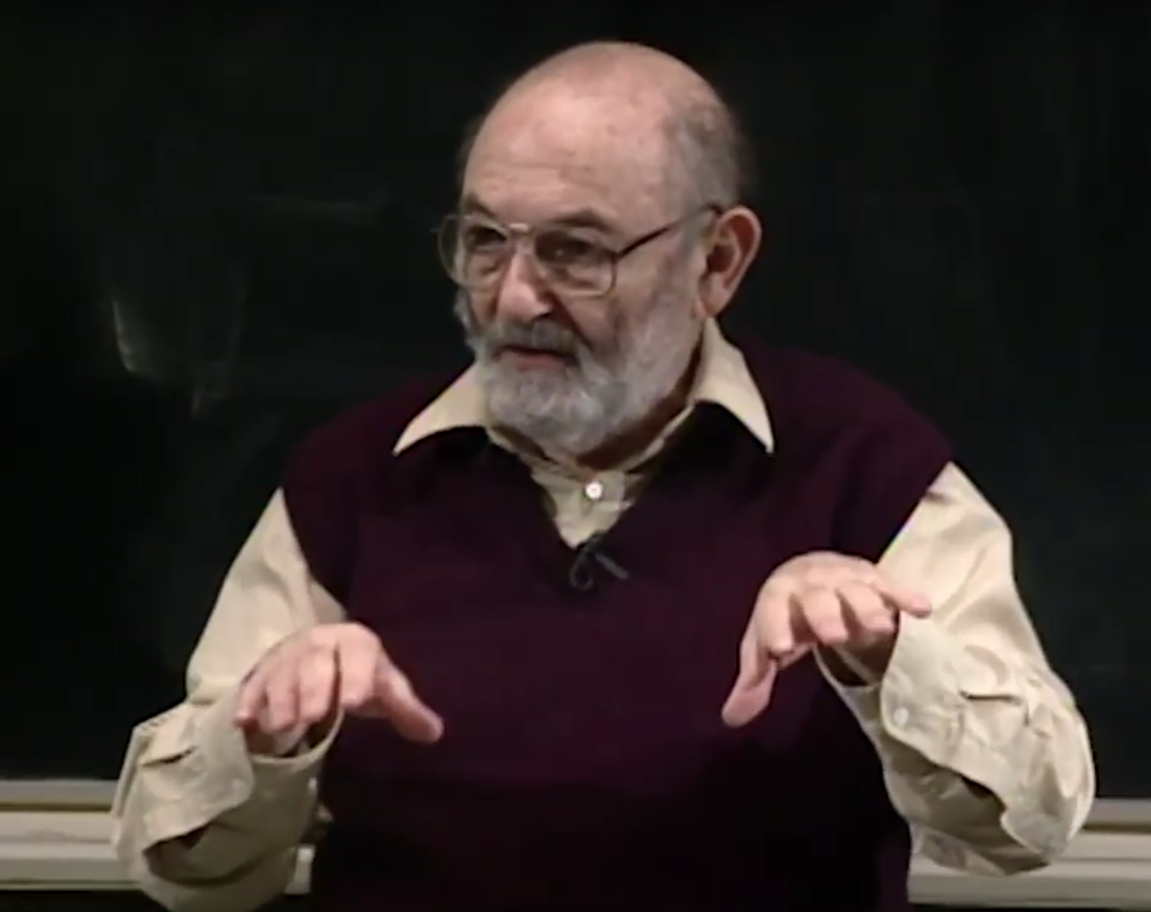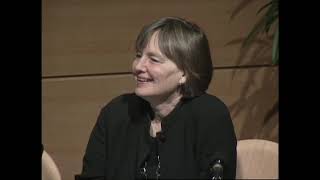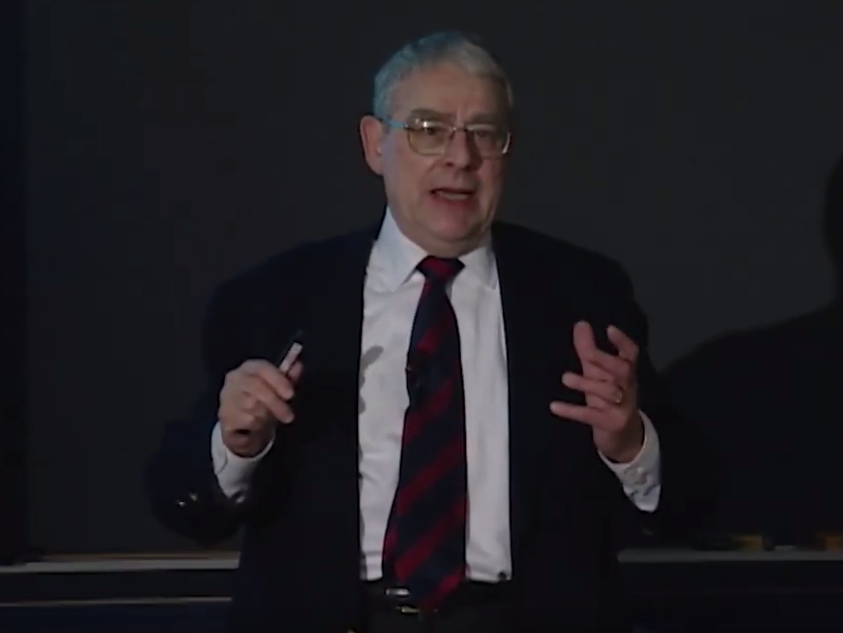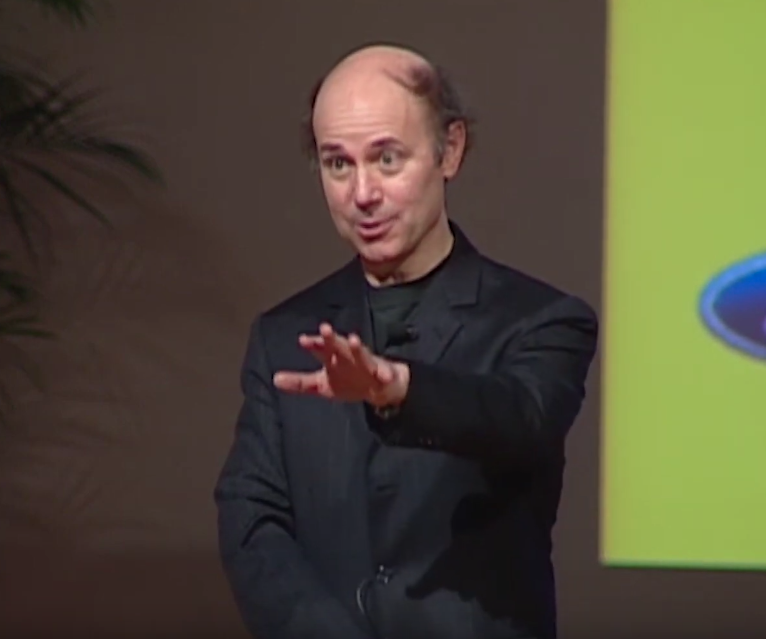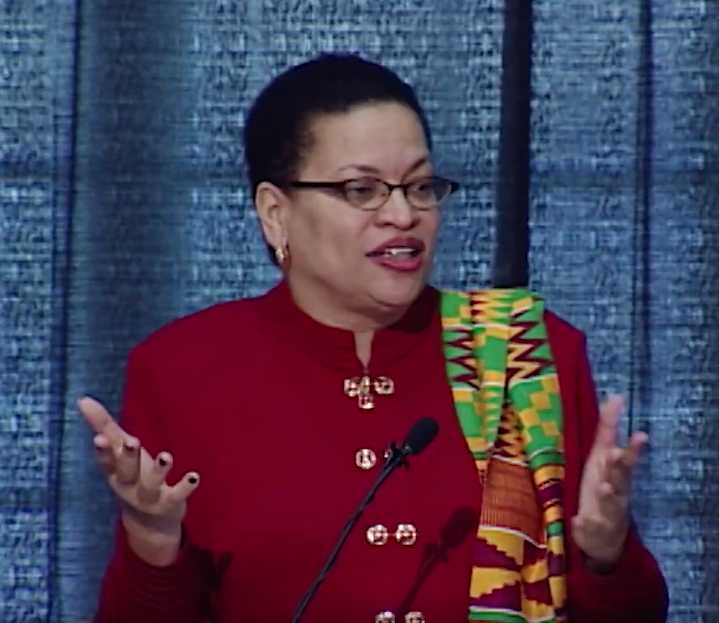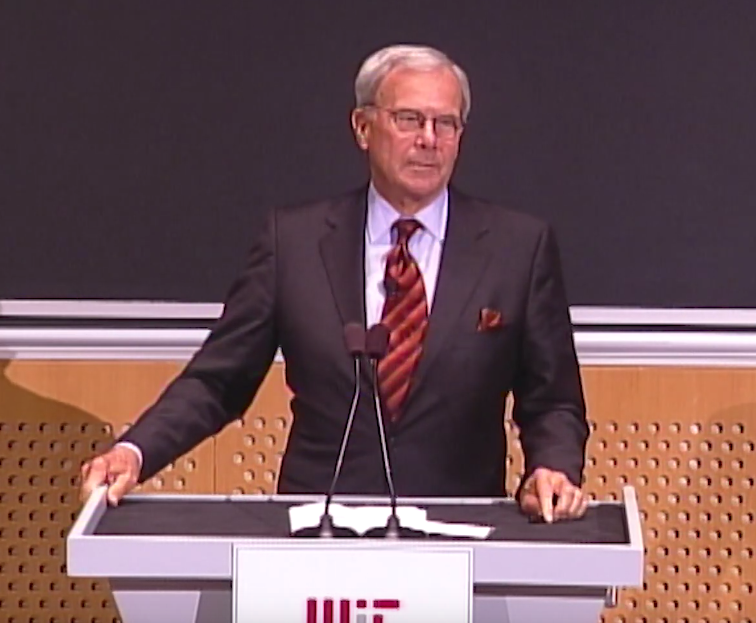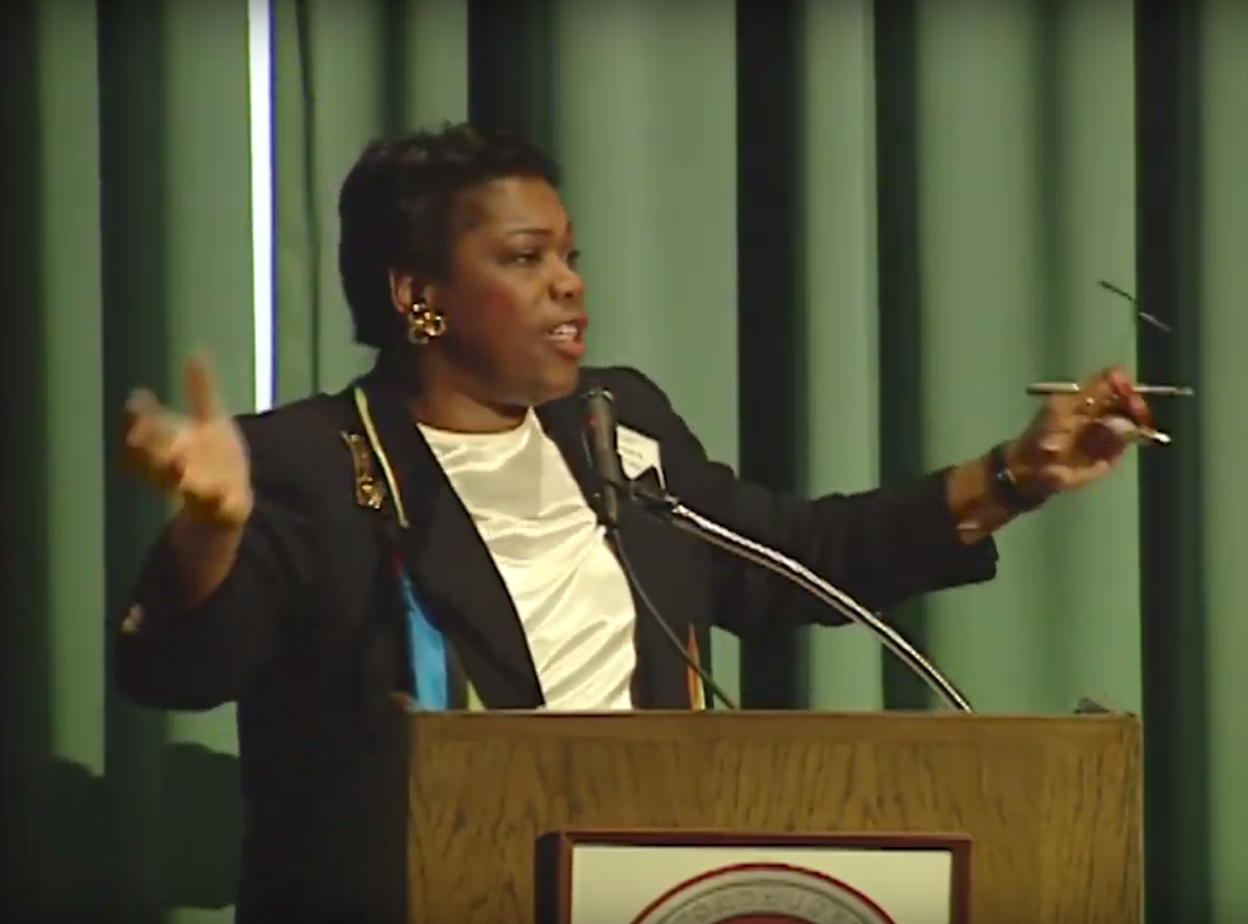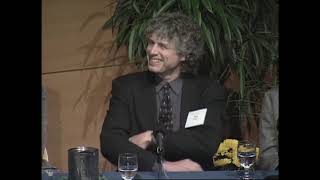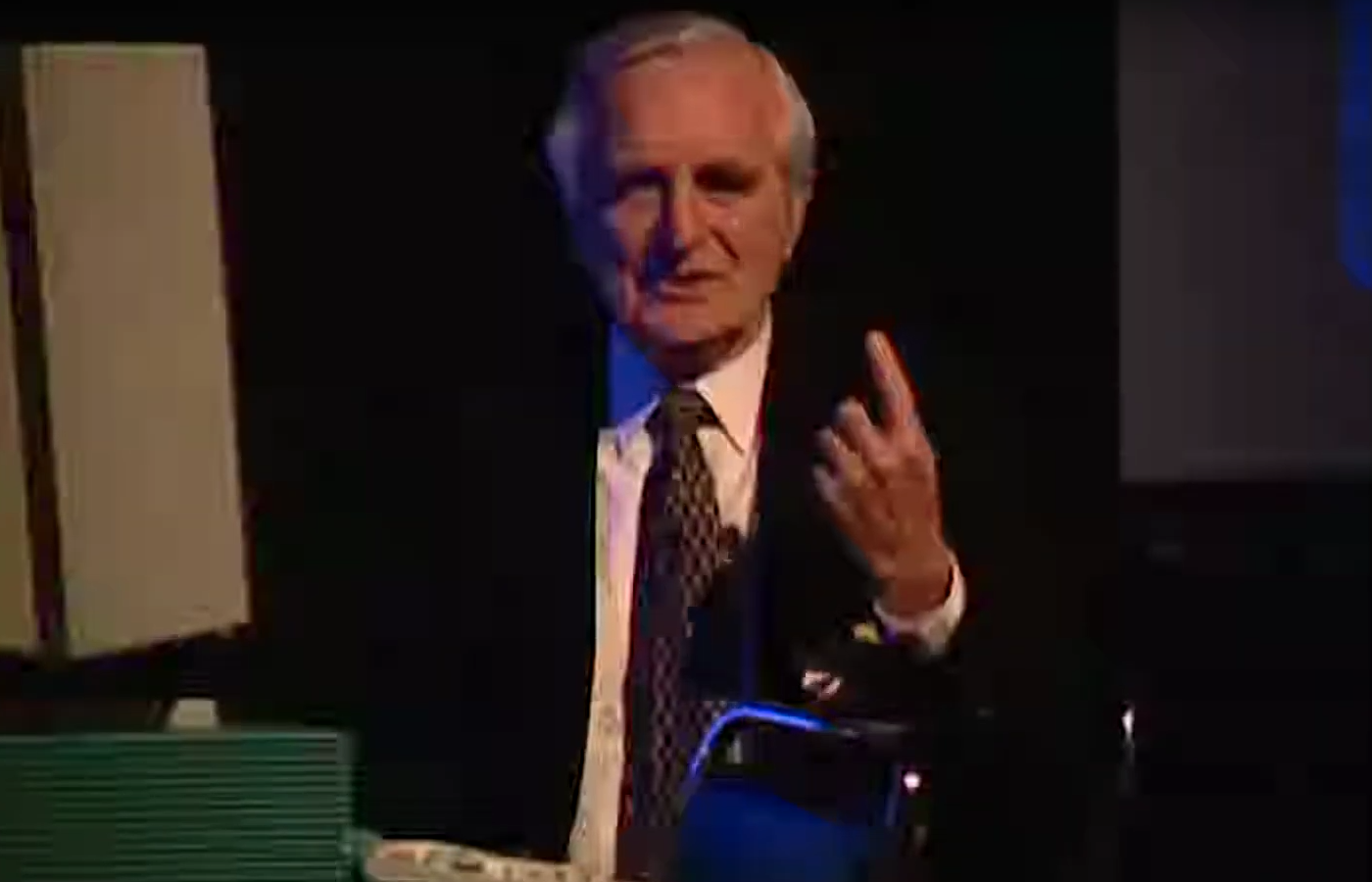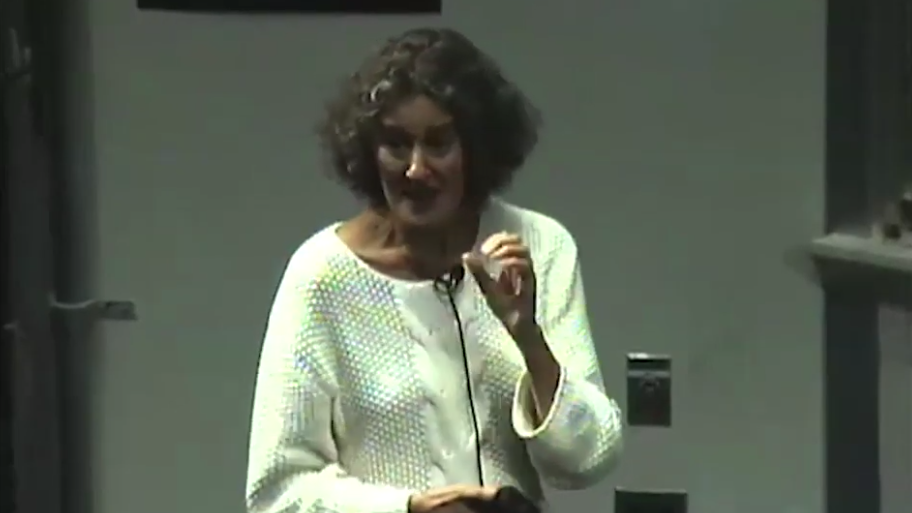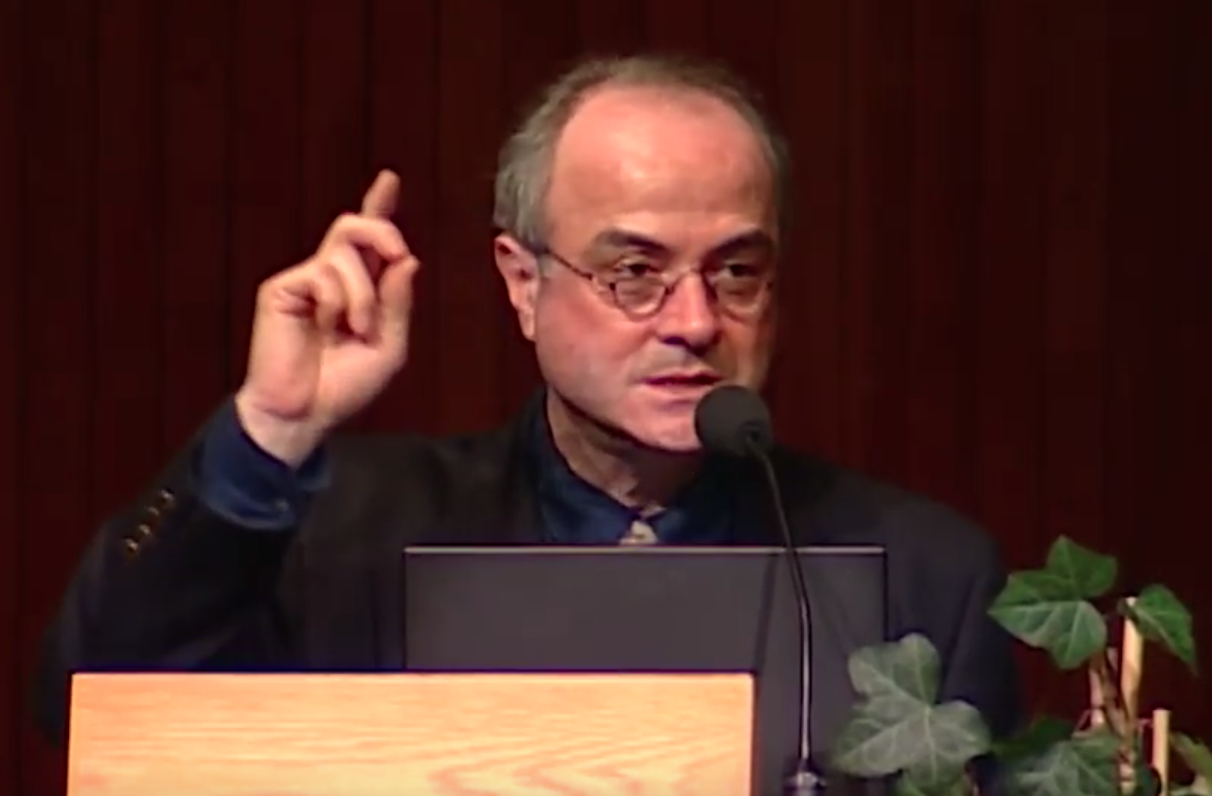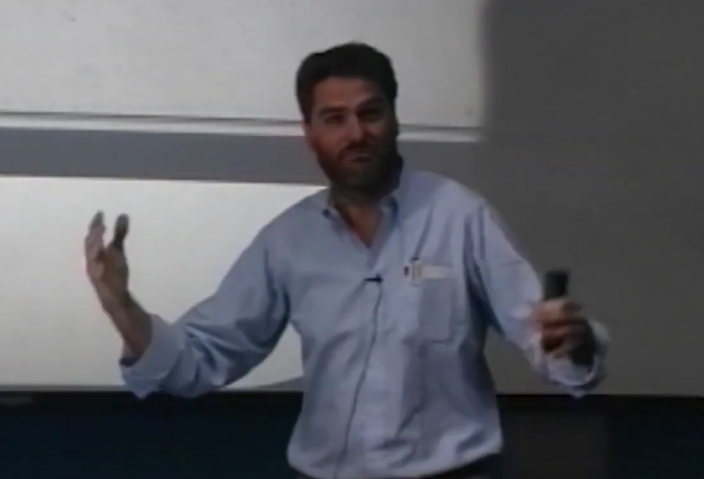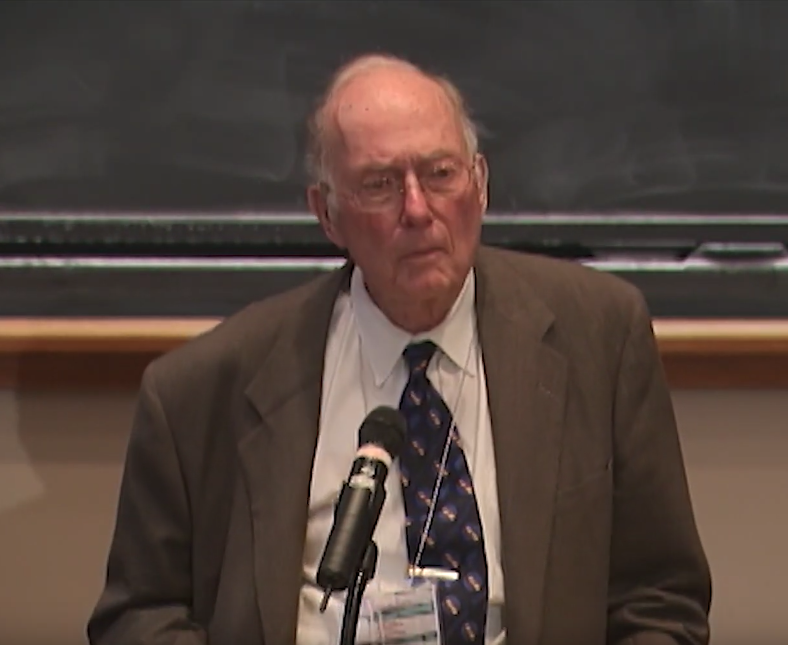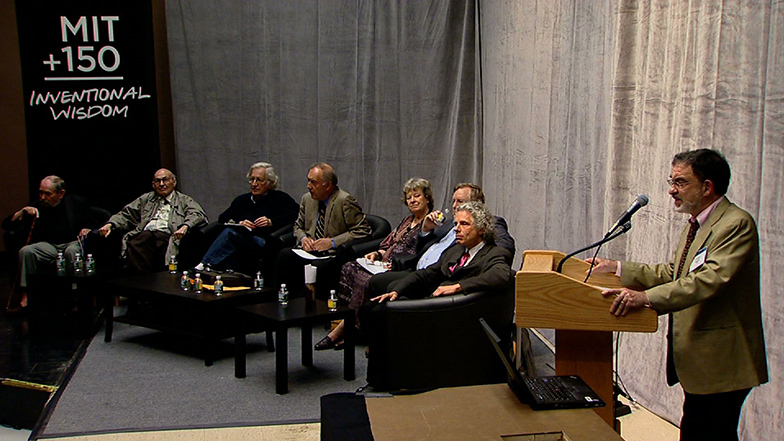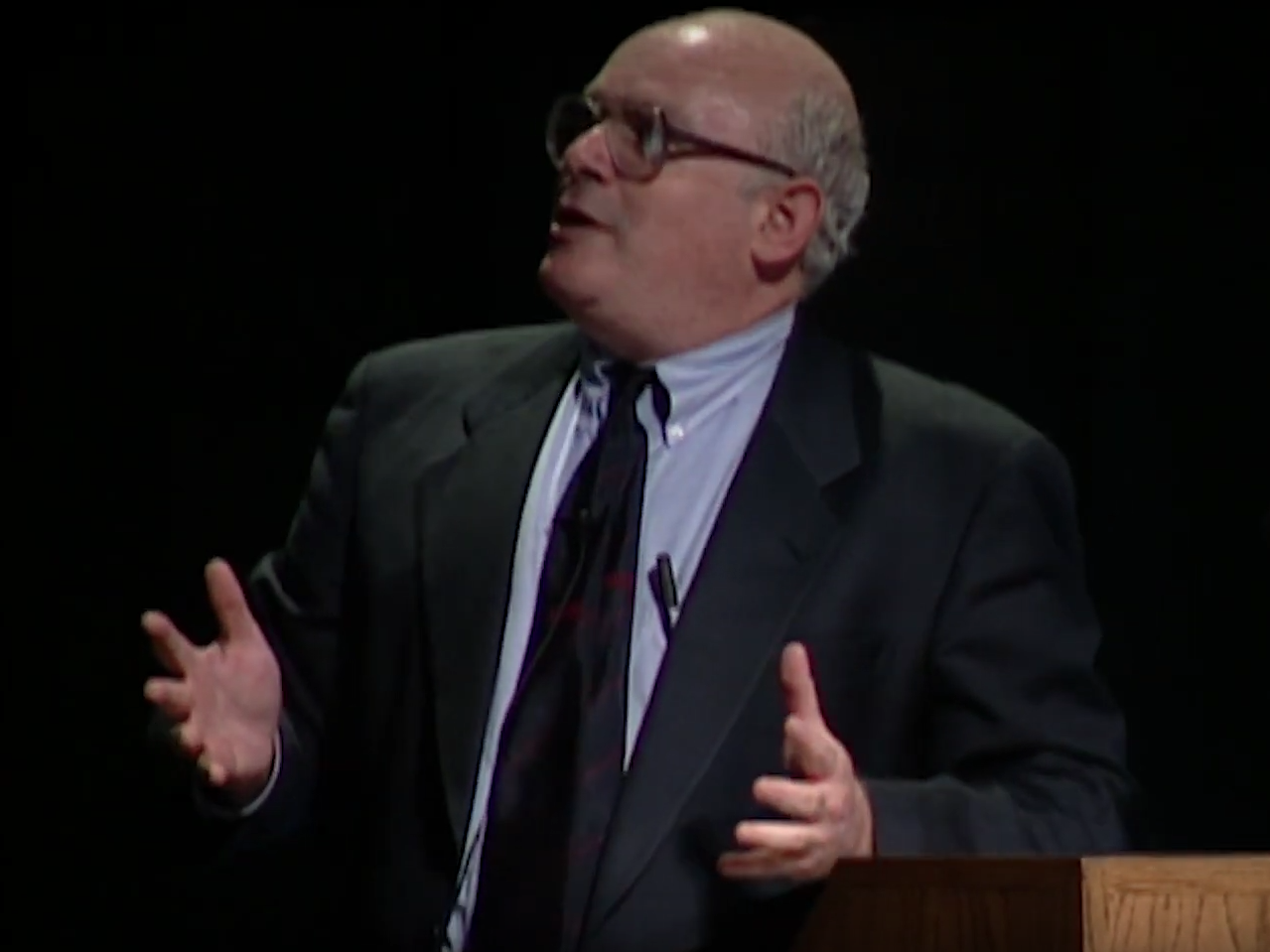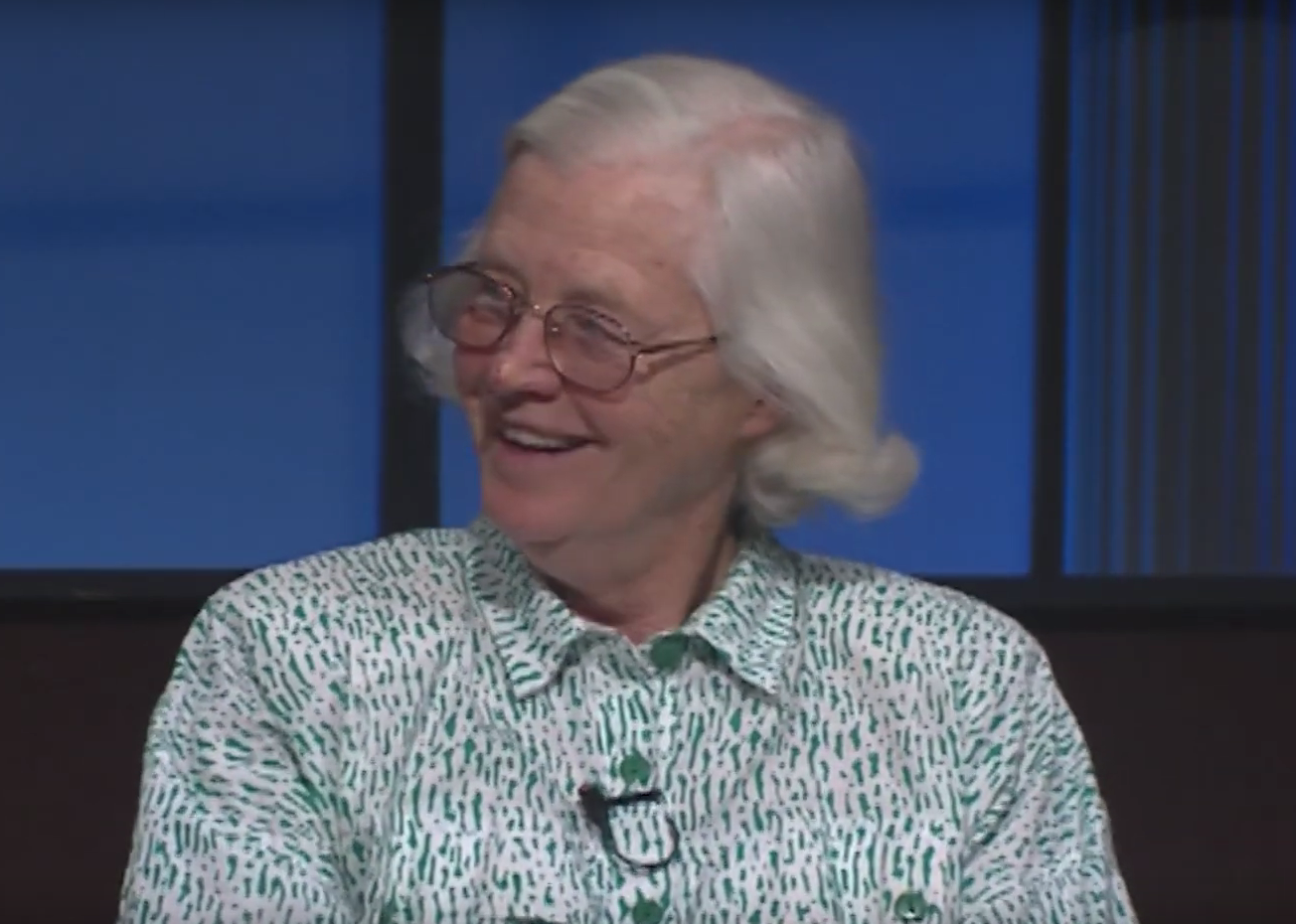20th Annual Dr. Martin Luther King, Jr. Celebration - Mrs. Coretta Scott King, "The Movement for Economic and Social Justice”
[APPLAUSE]
HUMPHREY: Good afternoon. Good afternoon.
AUDIENCE: Good afternoon.
HUMPHREY: It's cold, isn't it? On behalf of President Charles M Vest and the Dr. Martin Luther King planning committee, distinguished guests, faculty and students, ladies and gentlemen, welcome to the 20th annual celebration at MIT of Dr. Martin Luther King, Jr. My name is Andrew Humphrey, and I'm a second year graduate student for a PhD in Atmospheric Science.
The theme for this year's celebration is The Movement For Economic And Social Justice, 1994 And Beyond. A theme like this may imply that like in 1964-- or in 1694-- there is no economic or social justice today. In order for us to move beyond 1994, we must look behind 1994 at the struggles and battles our people had to endure to bring us up to where we are today.
One thing is clear-- during Dr. King's time, all time and energy was spent being alert, responsive, and persistent for the economic and social welfare and, eventually, human rights of all people. Today we must have that same energy and vigilance, because, ironically the problems and language of those times 30 or 40 years ago are creeping back or have never left us.
Two legacies of Dr. King were voting rights and voter education, because voting is part of being a full participant in this society, and demanding positive social and economic change. And Dr. King once wrote, "Justice delayed is justice denied." After a delay of over 30 years in Mississippi, justice has finally come on the assassination of Medgar Evers--
[APPLAUSE]
--who was another champion of economic and social rights. The assassin, Byron De La Beckwith, has been put away for life. The widow, Myrlie Evers, said while gaining her composure, "I think it has been a very, very long battle." Well it has been for her and it still is for us today as we move beyond 1994.
At this time, we should applaud those persons who for 20 years have been influential and in the recognition of Dr. King's birthday and producing this King celebration for you. From MIT, the Associate Dean of the Graduate School, Dr. Isaac Colbert, the Director of Program Advancement, Professor Royce Flippin, Associate Director of the Financial Aid Department, Miss Yvonne Gittins, Chairman of the Corporation, Dr. Paul E. Gray, who was also instrumental in bringing Mrs. King here to us today, Professor of Athletics, Dr. Leo Osgood, MIT Episcopal Chaplain, Reverend Scott Paradise, Assistant Dean to the Graduate School, Mrs. Margaret Daniel Tyler, and Special Assistant to the President, Dr. Clarence G. Williams.
[APPLAUSE]
Also, from the Cambridge community we have the Director of the Educational Talent Search Program, Mr. Ron Crichlow, and those who have retired, Professor Frank Jones and Professor Robert Mann.
Now over 20 years, there are several other persons on this list. However, for the sake of time, we would like to thank all of these people at this time as a whole for making this event a success.
[APPLAUSE]
Rev. Scott Paradise will now open our celebration with the invocation.
PARADISE: Let us pray. God of love and justice, we come together in a spirit of gratitude. We remember with thanks the life and work of Martin Luther King, Jr. We give thanks for the courage with which he challenged the perpetrators of racial oppression, in spite of threats against his life and welfare.
We give thanks for the persistence with which he taught love and nonviolent action as the means to change an evil system. We give thanks for the stubbornness with which he supported the victims of economic injustice, even when we knew this would not make him popular. We give thanks for the truth he spoke against the war in Vietnam, in spite of warnings that such words of truth would cost him major support.
We give thanks for the deeds of love and self-sacrifice and heroism that his voice inspired among so many. We give thanks for his vision of American society as it ought to be, as it might be, and, as God willing, as it will be.
We pray that in this time together, our determination will be stoked to continue the work that Martin Luther King, Jr. left yet unfinished. Amen.
HUMPHREY: Thank you very much, Rev. Paradise, for those very timely and accurate words.
Now will everyone please join in singing the first stanza of Lift Every Voice And Sing.
[MUSIC "LIFT EVERY VOICE AND SING"]
[INAUDIBLE SINGING]
HUMPHREY: Thank you. We were led by the pianist John Ross. Now we'll hear from our new generation, with some fresh perspectives on Dr. King. We will hear first from an MIT Upward Bound program student, Mr. Joshua [? Mantu. ?] Then from MIT's undergraduate school, we have Miss [? LaShawn ?] [? Berrian. ?] And finally from MIT's graduate school, we have Mr. Joshua Joseph, Jr.
[APPLAUSE]
MANTU: President Vest, keynote speaker Mrs. King, program presenters, and guests-- good afternoon. When it was brought to me to come speak here today, the name Martin Luther King came up in the conversation, of course. I went through my mind, and I was trying to think of all the things that I knew about him. All I could come up with-- the only things I could came up with was that he was a civil rights leader, the March on Washington, and that he was assassinated. And I feel that my generation really doesn't know how much that he's benefited us. And I think that is a much greater emphasis should be put on Martin Luther King, and that a lot of people my age should know a lot more about him. Because looking through his works, he said lots of great things that are even relevant to us in 1994.
Newsflash-- gunmen opened fire at the Chez Vous Skating Rink. Seven youth injured.
Today part of our theme addresses social justice, so as I looked through Dr. King's work, I ran across the Eulogy of Martyred Children. That was written in 1963, 31 years ago. As I read, a part of it touched me, and it went like this.
"So in spite of the darkness of this hour, we must not despair. We must not become bitter, nor must be harbor the desire to retaliate with violence. We must not lose faith in our white brothers. Somehow, we must believe that the most misguided among them can learn to respect the dignity and the worth of all human personality."
After reading this work, I wondered, if Dr. King was alive today and reading the eulogy to deal with the aftermath of today's street drama-- for all you generation gap folks, that means street violence-- what would he write?
Newsflash-- black police officer shot and killed. Suspect, 18-year-old black teen.
Have the times changed drastically? In Dr. King's day, it easier to recognize the enemy-- bigots, racists, and all those who are violently against the uplifting of African Americans. The majority was white, so the enemy was easy to identify. Unity amongst blacks at the same time was so strong, it brought tears to your eyes. Singing, living, fighting, and dying for the struggle.
But today, things have changed. Instead of singing and living, we're fighting and dying in large numbers.
Newsflash-- Four-year-old Tiffany Moore, an innocent bystander, was shot and killed by a ricocheting bullet.
"See you tomorrow," is something that is not easily said between inner city youth. To see another day has become a sort of gift or challenge nowadays. We have had to come to grips with making goodbyes a lot more final. As we part and go our separate ways, we pray and hope that we will see that friend again. And I emphasize hope for hope is all we have left. To say that is not true is to life to yourself.
I'm only 17 years old, but I bet that I've seen more violence than most of you in this audience. To get home each day and see my mother is a blessing, because I know that many mothers will never have the chance to see their children ever again.
Is this the fate of the human race? At this stage we're praying just to see another day. Will it come to the point that we're praying just to see the next hour or minute?
A lot of folks want to focus on the dream. Well it seems to me the dream is quickly becoming a chapter in a Stephen King novel, a nightmare. But what is our destiny? I have no problem with dreaming, but my present forces me to focus on reality.
So what if we bring the eulogy in 1994 eyes? Would Dr. King write, "In spite of darkness of this hour, we must not despair. Must not become bitter, nor must we harbor the desire to retaliate with violence. We must not lose faith in ourselves. Somehow we must believe that the most misguided among us will learn to respect the dignity and the worth of all human personality."
I think he would. Thank you.
[APPLAUSE]
BERRIAN: Good afternoon. When I was asked to reflect today on what Dr. Martin Luther King, Jr.'s legacy means to me to Mrs. Coretta Scott King and all of you, I was a little afraid that I would not be able to find the words that would adequately express what Dr. King's legacy means to me. But then it occurred to me that I really didn't need the words at all, but that who and what I am are evidence enough.
I am a young black female engineer at the Massachusetts Institute of Technology.
[APPLAUSE]
It is because of Dr. King's dream that I can say these words. All too often in society, we applaud a person's achievements when we feel that they have been successful. And we tell them that we-- we encourage them to be-- to work harder if we feel that they haven't lived up to their full potential.
What is overlooked in this is a person's ability to perceive achievement. Dr. Martin Luther King, Jr. did not ignore this crucial element in the advancement of African American people.
It was Dr. King's belief that every child in America should be entitled to equal education and opportunity in order to pursue their dreams and aspirations. Through this dream, Dr. King opened up a whole world for little black children to not only dream of achievement, but to accept the reality that they can succeed at anything of which they can dream. This is the greatest gift that Dr. King has given my generation.
And as a young black woman, I stand in this institution and I know that I can and will accomplish anything which I set out to do. And I realize that this knowledge is a gift given to me in the legacy of Dr. Martin Luther King, Jr.
And I would like to say to Mrs. Coretta Scott King that it is an honor for me to tell you that your husband has played an integral role in me being able to stand in this institution. And I can only imagine what an honor it was to know him as a person.
But each day that I achieve and I get one step closer to my own dreams, I know what an honor it is to benefit from his legacy, from who he was, from all that he has done, and from all that he continues to do through the dreams of young black children in America. Thank you
[APPLAUSE]
JOSEPH: Imagine, if you will, if the third Monday of every January were not the first national holiday honoring a black man. Perhaps if all were perfect or even just significantly not as bad as they once were, seemed to be, and appear to remain, perhaps we would not be honoring Dr. King at all. At least not for leading through nonviolent civil disobedience the fight for dignity, justice, and humaneness for all persons, regardless of color.
I cannot imagine what it would have been like not to have had Dr. King and the struggle, for I do not know what it is to not be in the midst of struggle today. I left one struggle in Opelousas, Louisiana, flew to another here in Cambridge, and indeed live and exist in another here at the Massachusetts Institute of Technology. Good afternoon.
In humble privilege, through joyful reserve, with deep adoration and significant thanks, I offer reflections on the life and legacy of Dr. Martin Luther King, Jr. Born in December of 1969, I missed the life, but thank god I got the legacy that remains. Grateful I am that the dream of yesterday remains a vision for me today and hope for all tomorrow.
My role is to become a perpetuator of the dream so that my life and my spirit, the life and the spirit of all of us, will exploit that which is good, right, and just in shaping our political socioeconomic framework, deeply rooted in our moral and religious conviction to build a better country and to become a better world. I am thankful to Dr. King for building a bridge for me that links my present to an older past.
It was almost a century before Dr. King was born that Negroes attacked the Jim Crow-ism of this country through the speaking of Charles Linux Remond. And I quote, "There is a distinction between social and civil rights. We all claim the privilege of selecting our society in associations, but in civil rights, one man has not the prerogative to define rights for another." End quote.
To reflect on Dr. King is to remember the past, not to be doomed by it or to condemn others because of it, but to live, grow, and excel in spite of it. Dr. King, I thank you for building that bridge, in spite of my regret for the need of its very existence. I reflect of a parallel journey, and it encourages me.
Dr. King, born and raised in the South. Myself, born and raised in the South. Dr. King, a graduate of Morehouse College, a historically black college. Myself, a graduate of Southern University, a historically black university. Dr. King, choosing to be a servant of all in association with Alpha Phi Alpha. Myself, choosing to exemplify the cardinal principles of manhood, scholarship, perseverance, and uplift, with the brotherhood of Omega Psi Phi fraternity incorporated. And both, choosing New England to broaden horizons in education and the human experience.
All of us must step onto that bridge which leads through education. For without education, we are destined to fail. But as Carter G. Woodson mentions in The Miseducation of the Negro, I quote, "The same process, the same educational process, which inspires and stimulates the oppressor with the thought that he has everything and has accomplished everything worthwhile, depresses and crushes at the same time the spark of genius in the Negro by making him feel that his race does not amount to much and never will measure up to the standards of other peoples."
Dr. King's legacy begs us to prevent the system of oppression from handicapping our hearts, minds, and souls. It is not enough to matriculate at MIT and escape into the protection of science and engineering agendas. We must give back to the communities built upon the blood, sweat, and tears of our mothers and fathers of Africa.
Our agenda--
[APPLAUSE]
Our agenda is multi-objective, and we cannot cross that bridge without first building community. I commend the spirit of Chocolate City in choosing to demonstrate last year in a nonviolent manner. It was Dr. King while in a Birmingham, Alabama, jail cell, defended his mission against the attacks of prominent white clergymen. He said, "Actually, we who engage in nonviolent, direct action are not the creators of tension. We merely bring to surface the hidden tension that is already alive. We bring it out in the open where it can be seen and dealt with. Like a boil that can never be cured as long as it is covered up, but must be opened with all its pus flowing ugliness to the natural medicine of air and light, injustice might likewise be exposed with all of the attention its exposing creates to the light of human conscious and the air of national opinion before it can be cured."
I close by saying a special thank you to Dean Isaac Colbert for allowing that caged bird to sing in a strange and distant land. I close with WA Dromgoole's The Bridge Builder, in the spirit that Dr. Martin Luther King, Jr. built a bridge for our struggles today.
"An old man going a lone highway,
Came at the evening, cold and gray,
To a chasm vast and wide and steep
With waters rolling cold and deep.
The old man crossed in the twilight dim
The sullen stream held no fears for him.
And he stopped when safe on the other side
To build a bridge to span the tide.
"Old man," said a fellow pilgrim near,
"You're wasting your strength with building here.
Your journey will end with the ending day.
You never again will pass this way.
You've crossed the chasm deep and wide.
Why build you this bridge at eventime?"
The builder lifted his old gray head.
"Good friend, in the path I have come," he said,
"There followed after me today
A youth whose feet must pass this way.
The chasm, that was as naught to me,
To that fair-haired youth may pitfall be.
He, too, must cross in the twilight dim.
Good friend, I am building this bridge for him."
Thank you.
[APPLAUSE]
HUMPHREY: Thank you, Joshua, thank you, [? LaShawn, ?] and thank you, Joshua. Very strong, very powerful messages. Very good.
We will have a musical selection from a member of our-- from a member of our own community here. Miss Pamela Ambush is from the Department of Music and Theater Arts. She will be singing the song, "Dreams" And she will be accompanied by pianist John Ross.
[APPLAUSE]
AMBUSH: Thank you. The note of encouragement is "Dream On."
(SINGING) When Martin was a little boy, he was driven by his dreams.
God spoke to him, told him that he'd chosen him.
When others didn't understand, Martin still believed
And trusted God, trusted and was willing to dream on.
When the world just didn't believe, God had promised never to leave him alone.
Dream on. Follow hope wherever God leads.
In the seed of dreams, there's promise of the dawn.
Dare to listen for the music. Keep on following the star.
Morning can't be far. Dream on. There's not a valley deep enough that God can't guide us through.
He'll walk with us, walk the roughest roads with us.
No mountain ever rose so high that we can't climb with God.
And stand up tall, stand and look down on it all.
Dream on. When the world just doesn't believe.
God has promised never to leave us alone.
Dream on, follow hope wherever God leads.
In the seed of dreams there's promise of the dawn.
Dare to listen for the music, keep following the star. Morning can't be far.
Dare to listen, keep on following the star. Morning can't be far.
Dream on. Dream on.
[APPLAUSE]
HUMPHREY: Thank you very much, Miss Pamela Ambush, and thank you again, Mr. John Ross. Beautiful.
Now we will listen to remarks from President Charles M Vest, who will introduce our keynote speaker, Mrs. Coretta Scott King.
[APPLAUSE]
VEST: Colleagues and friends, good afternoon. It is truly a great honor to have with us today Mrs. Coretta Scott King on this the 20th anniversary of MIT'S annual celebration of the birth of Martin Luther King, Jr. We all value very deeply this powerful presence among us today.
In fact, it seems particularly appropriate for Mrs. King to be here this year, just a month after some 2,000 African American women came together at MIT for a three-day conference--
[APPLAUSE]
--for a three-day conference entitled Black Women in the Academy-- Defending Our Name. As the first major gathering of its kind, this conference far exceeded the expectations of its organizers, two remarkable young faculty members here at MIT, Professors Evelyn Hammond and Robin Kilson.
This conference served as a beacon of hope, as it created in those few days a community of scholars who will now be able to draw on and reinforce each other's strength. And there is no question that the conference served as a challenge to all of us in higher education to increase the number of our black faculty members, both men and women, and to recognize and deal with the issues of race in our scholarly lives and in our communities.
At MIT, the challenge is clear. We can now see the changing face of America mirrored in our undergraduate students. It is not a perfect reflection, to be sure, but we are moving in the right direction. The mirror begins to cloud, however, when it comes to our graduate students and to our staff, and the glass is frankly distorted when it comes to our faculty and administration.
We at MIT respond to change by generating or incorporating new ideas and new knowledge and our professional and scholarly lives. If we are to maintain our high quality and our relevance to the world, we now must become equally adept at incorporating cultural and demographic change into our life as an academic community. To do this, we must recognize and draw together the full range of talents of the men and women from all racial, cultural, economic, and ethnic backgrounds that comprise our community, and we must continue to enrich the fabric of our institution.
This requires first that we take renewed and affirmative action to ensure equality of opportunity in education and employment at the Institute. Three years ago, we started a program to do just this in the domain of faculty recruitment. We are beginning to see results. Over this period, we have successfully recruited 11 men and women of color to the faculty. That may not sound like much, but it is progress.
Bringing more people of color to our campus as faculty, as staff, as well as students is just the first step, however. Real success will be achieved through serious attention to mentoring and to career development at all levels. For that to succeed, it is imperative that we work to create at MIT an atmosphere of civility, collegiality, and mutual respect, one that stimulates and supports all of our students, staff, and faculty.
There are many on campus who will tell you that the environment here does not do that, and that diversity of race and class and culture has fragmented our community. There is some truth to that, but I must believe that we can do something about it, and that, indeed, we must.
To this end, I am appointing this morning a presidential committee on campus race relations. It is a diverse group of 13 students, staff, faculty, and administrators that will be chaired by associate provost Ellen Harris. It will catalyze activities, enhance communication and networking, and administer a modest grants program to support innovative ideas arising from the community on ways to further harmonious race relations. This idea grew out of a quite wonderful grassroots group that began meeting during the last year on an ad hoc basis, and I'm very grateful to them for catalyzing this.
One of the things that we can do to create a climate of greater mutual respect on our campus is to honor those who have honored us by their achievements. In this regard, I am also pleased today to announce the establishment of a new endowed professorial chair at MIT to be known as the Robert R. Taylor professorship.
[APPLAUSE]
This faculty chair will honor in perpetuity the memory of an illustrious alumnus, our first African American graduate one century ago, a distinguished architect who went on to accomplish many things, including the design of much of the campus of Tuskegee Institute. This professorship will stand as both a reminder and as an instrument of MIT's commitment to diversity. It will provide yet another way for the Institute and for a distinguished faculty member through his or her scholarship and professional activities in any of our schools to contribute to the enhancement of our institutional excellence and to the advancement of diversity on the campus. We will have this endowed chair firmly in place during the coming year.
These are just a few small steps that we are tweaking to make MIT a place where everyone reaches his or her potential for achievement, for contribution, and for fulfillment. Success in these efforts will enable us not only to reflect better the changing face of America, but to draw on the full range of talents that are needed to meet the challenges of a changing world.
I believe that we are making some progress, and I think it is fair to say that the modest gains that have been made here in the academy and elsewhere can trace their roots the courageous advocacy of civil rights leaders such as Dr. King and of Coretta Scott King. Such battles have been won, but much remains to be done.
It still comes as something of a shock to me to realize that virtually all of the students here today had not been born when Dr. King was leading the crusade for racial harmony and social justice through nonviolent action. For them, as indeed their voices have told us today, he is a figure from history rather than from personal memory. To be sure, we need to be inspired by and understand the lessons of history if we are to make progress toward becoming a society that truly embraces people of different races, cultures, and classes. But we also need articulate, effective, and resolute guides in the here and now to help us along the way. We are fortunate indeed that Mrs. King is just such a leader.
Coretta Scott King was born and raised in Alabama. She earned an AB from Antioch College in 1951, and her Bachelor's degree in music from the New England Conservatory in 1954. While at the conservatory, another voice student introduced her to Martin Luther King, Jr., who was studying for his doctorate in theology at Boston University. They were married in 1953, and after completing their degrees they chose to accept the pastorate of the Dexter Avenue Baptist Church in Montgomery, Alabama.
During the 1950s and '60s, Mrs. King shared and carried her husband's advocacy of peace and justice across the nation and throughout the world. A tireless speaker and organizer, an accomplished singer and teacher, she dedicated an extraordinary amount of energy and vision to the cause of civil rights, all while raising four children.
In the days and weeks after the assassination of Dr. King in April of 1968, she calmed the anger and despair of his followers. She gave the nation a model of dignity and caring in the midst of grief. She became both a leader and a symbol of the movement for peace and justice.
She has traveled the world in this cause as a goodwill ambassador, political activist, journalist, television commentator, and most importantly, as the founder and chief executive officer of the Martin Luther King, Jr. Center for Nonviolent Social Change. The center, which is located near the Ebenezer Baptist Church in Atlanta, now covers three full blocks in a neighborhood that has been declared a national historic site.
The center houses, offices, Dr. King's tomb, his birth home, the King library and archives, a cultural center, a chapel, and conference and meeting facilities. Last year, it attracted more than three million visitors. The center offers programs for young people, teachers, community leaders, and others on such issues as voter education and registration, literacy, the performing arts, early childhood education, conflict resolution, nonviolent protest strategies, and job training, just to name a few. The center, with her leadership, has been a pivotal force in building major interracial coalitions which serve the cause of social, economic, and political justice.
Ladies and gentlemen, it is a deep honor and privilege to present to you Mrs. Coretta Scott King.
[APPLAUSE]
KING: Thank you very much, President Vest, for you very kind and generous introduction. And let me thank all of you for your very warm welcome.
And it's a great privilege for me to be here today to participate in this Martin Luther King celebration. It only took me 20 years to get here, but I am here and I'm very proud to be here.
[APPLAUSE]
I was telling Professor Osgood and President Vest that I couldn't come during the time that we are celebrating in Atlanta, because we have a nine or 10 day celebration, and it's not possible for me to come. So I think after you decided to allow me to come after the birthday and holiday, then I could make it. So thank you for giving me that consideration.
I want to congratulate the Martin Luther King Jr. Day planning committee for the work that you have done over these 20 years, and for this particular program this anniversary, and certainly to thank you for inviting me.
You have chosen well in making your theme for this program The Movement For Economic and Social Justice-- 1994 and Beyond. I feel this way because I believe that the best way to celebrate and commemorate Martin Luther King Jr.'s birthday is to recommit ourselves to his unfinished work for social and economic justice.
Most people are aware that the civil rights movement focused on the elimination of racial segregation, but we were also concerned about economic empowerment of the disadvantaged and impoverished people in our communities. My husband once said that the inseparable twin of racial injustice is economic injustice. In other words, wherever you find racism, you will also find economic injustice.
Martin understood that civil rights meant little without economic resources. What good is the right to sit at an integrated lunch counter, he once asked if you can's afford the price of a meal?
The struggle for economic empowerment was an integral part of every campaign of the civil rights movement, from Montgomery to Memphis. We always pressed for a greater share of jobs, employment training, and economic opportunities, even as we struggled against racial discrimination.
And let us never forget that Martin Luther King, Jr. was assassinated at a labor union organizing campaign. He felt strongly that trade unions were essential for the economic empowerment of all Americans, and black Americans in particular, as he said, "Our needs are identical with labor's needs-- decent wages, fair working conditions, livable housing, old age security, health and welfare measures, conditions in which families can grow, have education for their children, and respect in the community." End of quote.
He went to Memphis as a part of the Poor People's Campaign, which was an interracial coalition Martin organized to press for fundamental reforms to eliminate the cancer of poverty from American life. Martin understood that there were more white people than black people living in poverty. He felt that a social justice movement had an obligation to help white people, Hispanic, Native American, and other ethnic groups who was suffering the ravages of poverty as well as black Americans.
And even today, more than 25 years after Martin was assassinated in Memphis, economic empowerment is still the central issue we face. We certainly have our work cut out for us in meeting this challenge.
Our challenge is now to organize a nationwide, multi-racial coalition for job training, employment, and education programs in our communities. We're not just talking about summer jobs. We want stable jobs at a living wage so people can raise their families at decent living standards.
We need tax incentives to make investment in poor communities attractive to business investors, just as we need tax disincentives for corporations that invest in other nations instead of our cities. We have to be about the business of self-empowerment.
[APPLAUSE]
We have to be about the business of self empowerment as well. This means we have to organize co-operative enterprises so unemployed people will not only have a decent job, but a share in the ownership of the enterprise that employs them. And the same thing goes for housing ownership.
Ownership is the key to economic revitalization. Having a stake in the ownership of our homes and places of employment is the beginning of political, social, and economic empowerment. As Andrew Young has said, "The struggle of the '90s is to integrate the money."
[LAUGHTER]
[APPLAUSE]
Since it was founded in 1968, the King Center has been active in the struggle for economic empowerment for minorities and working people. The Center played a major role in organizing the National Committee For Full Employment, which was instrumental in passing the Humphrey-Hawkins Act and other legislation to provide jobs.
That was way back in 1978. Some of you wouldn't remember it. Many of you would not remember it in this audience. But I hope somebody remembered that we did get a bill. But it wasn't enforced, and it didn't get implemented, and it was watered down.
But I'm not discouraged. We have to keep working for full employment legislation. I really believe that it's going to be the key.
We have lobbied long hours for employment bills, and we have aggressively tapped public and private sector initiatives to fund job training and employment programs for at-risk young people. The Center has also support needed increases in the minimum wage, labor union organizing campaigns, tax reforms to benefit poor people, financial aid for education for needy families, and a host of legislative reforms for economic empowerment.
We have a great opportunity to advance the cause of economic empowerment for working people and the poor in this election year. We have to take control of our own destiny by launching a nationwide voter education drive, followed by the most aggressive voter turnout campaign in history. It just so happens that in a democracy, if you don't get registered and vote, then you have no political power, and therefore you cannot complain about what policies that the legislative bodies pass because you didn't have a part in making and participating in that through your elected representative.
And it's very important that students understand the power that they have, and organize themselves and get registered and vote in every single election. And I know some of you say, we don't have anything to vote for. You always have something to vote for. And I challenge you on that.
And remember that political commitment doesn't stop at the ballot box. After the elections are over, we have to do a better job of staying on our elected officials. We have to write them more often. We have to become better informed about legislation for economic empowerment. We have to meet with them until they are so tired of us that they begin to listen and respond to our concerns. Believe me, it works.
[APPLAUSE]
My most fervent hope is that 1994 will be the year that the political system begins to respond to the need for genuine economic opportunity for Americans of all races.
Above all, let us keep faith that we can do it. With enough creativity and determination, we will be able to create a society where every child can have a decent education and a chance for a better life, and where every parent can have a stable job that will enable them to support their families. Let us embrace this common vision and mobilize all of our resources to bring it into being. Let us put hope and economic opportunity for all Americans-- black, white, red, brown, and yellow-- at the very top of the political agenda.
Now we have witnessed some very impressive civil rights progress throughout American history, throughout American society, since Martin Luther King, Jr. began to lead the civil rights movement. I know it's difficult for younger people to appreciate and understand this, and I do sympathize with you. But as the young man said, our first speaker, we have to learn about and study about what the past history has been. It is important that we know what the progress that has been made is about, and how it came about, and the fact that many people suffered and even died, that we might have the rights that we have today.
And it is also important that if you're going to be an intelligent voter, you're going to have to know the issues. And that's why it's important to study your history. And American history includes the history of black people, which has not properly been written.
[APPLAUSE]
In commemorating Martin Luther King Jr.'s birthday, I realized that it was important that America take the Martin Luther King philosophy and his methods of nonviolent social change, embrace that philosophy, so that philosophy begins to permeate our society so that we could have a revolution of values which he called for. And the only way to do that, really-- not the only way, but one of the best ways, I think, of doing that-- was to have a holiday in his memory. Not for his sake but because America needs it. Our world needs it.
[APPLAUSE]
And I will speak more about those values. We have won-- the movement and won many great victories, including the desegregation of public facilities and legislated guarantees of voting rights. Yet racism remains, perhaps the single most destructive force in American society. A whole range of social problems, including poverty, urban decay, crime, the failure of our schools, and violence, are all aggravated by the persistence of racism. Until America comes to grips with the problem of racism, we will not be able to create the great democracy of Martin Luther King Jr.'s dream.
Racism not only hurts African Americans, it not only hurts Hispanic, Asian and Native Americans. It hurts white people. Racism divides people of all races who would otherwise share common interests. Racism creates a gulf of fear and suspicion between communities in every city. It feeds the cycle of poverty, crime, and violence, that is turning many of the nation's urban centers into ghost towns. It prevents our public schools from fulfilling their potential, and it undermines the credibility of us moral leadership.
Equal economic opportunity in particular has remained an elusive goal. The average median income for African American families is still less than 60% of the figure for white families. Nearly half of African American children are still living in poverty. The unemployment rate for black workers today is about double the rate for white workers.
My husband was irrevocably committed to diversity in all institutions of society, including the executive suites of America's great corporations and universities. "When I speak of integration," he once said, "I don't mean a romantic mixing of colors. I mean a real sharing of power and responsibility."
[APPLAUSE]
There has been little progress for African American executives in the highest echelons of corporate management. Today, only one black American has a Fortune 500 company, and we are under-represented in the middle and upper decision making levels of all but a very few multinational corporations. Women and minorities still encounter the glass ceiling when they try to move up the corporate ladder or in the academic sector.
It is so important for companies and institutions of higher education to make an earnest commitment to go beyond the letter of the law and to make diversity not just a buzzword for the public relations programs, but a real policy that will be reflected at every level of corporate decision making.
Now I heard President Vest speak about the innovations that you you're just going into here at this great university, and I want to commend you for what you are doing and what you're going to do more of in the future. And certainly, as you so well said, you've not done enough.
[APPLAUSE]
And you certainly are not alone in that. That speaks for most of the institutions of higher learning in our country. But I am encouraged that you are aware of it and that you are doing something about it.
[APPLAUSE]
Now that you are doing something about it, I'm going to charge you a little bit. MIT can become a national leader in promoting diversity by setting up more scholarships for minorities, by reaching out to help needy young people to get a decent education.
[APPLAUSE]
I know you're doing some of this, but I said more.
[LAUGHTER]
And providing more tenured professorships and higher administrative positions.
[APPLAUSE AND CHEERING]
And this will not only benefit minorities and women. It will also benefit white students and the entire university community by helping to prepare them for living in a multicultural society.
[APPLAUSE]
A commitment to improving race relations can help prevent further racial conflict, and I'm glad that you've set up this committee. I'd like to get a report on it by this time next year.
[APPLAUSE]
If we can build such bridges of knowledge and understanding between people of all races and religions, we will sow the seeds of a new unity in America.
I'd like to speak about religious diversity, because I think any of us who claim to be the followers of Martin Luther King, Jr.-- he was a Christian clergyman. First of all he was a minister of the gospel, as he would say, and he took his calling very seriously.
If we are his followers, we have a moral obligation to deplore the recent expressions of antisemitism that have polluted our society.
[APPLAUSE]
Antisemitism is as reprehensible and contemptible as racism, and anyone who supports this form of bigotry does a disservice to their country. As my husband said in a speech he gave just a month before his assassination, and I quote, "For the black man to be struggling for justice and then turn around and be antisemitic is not only a very irrational course, it is a very immoral course. And wherever we have seen antisemitism, we have condemned it with all of our might." End of quote.
He saw America not as a melting pot but as a vibrant mosaic of people of all races, religions, and ethnic groups. We need not surrender our group identities, he felt. Instead, we can weave them into a cooperative and mutually supportive framework.
He understood that multicultural unity was not only a way we can live together, but also a very powerful tool for personal, social, economic, and political empowerment. He understood that equal rights can be legislated to a great extent but genuine brotherhood and sisterhood cannot, for it comes from the heart.
We have learned that there's nothing automatic about good race relations. Instead, we must consciously work to build interracial trust and cooperation. If we are serious about fulfilling Martin Luther King, Jr.'s dream of a nation united in justice and peace, somehow, some way, we have to find a way to live together. As Martin said, "Like life, racial understanding is not something that we find, but something that we must create. The ability to work together to understand each other will not be found ready-made. It must be created by the fact of contact." End of quote.
Such a commitment can help prevent further racial conflict. If we can build such bridges of knowledge and understanding between people of all races and religions, we will sow the seeds of a new unity in America. During the civil rights movement, it was college students like you, students of all races and religions, who provided crucial leadership for social change. Young people like you are always the vanguard of any social movement, setting an energetic tone of courage and commitment, which compels an aggressive spirit of social change.
Never doubt that you have the power to provide leadership for social change. College students provided decisive leadership for ending the Vietnam War, and college students were in the Birmingham and Montgomery and Selma and all of the campaigns of the civil rights movement. And now we need you to once again lead us to a higher and more noble destiny.
So I want to appeal to you today to rise up and lead a new revolution of social change. And I say that knowing that as scientists and engineers, that not many of you are going to do that. But I want to challenge you anyway.
But as you go about doing what you must do, do it, as Martin Luther King said, in an extraordinary way. And do it with heart and soul. And do it as a service to your fellow human beings, to your community, to your nation, and to the world, because we do live in a global community.
[APPLAUSE]
I appeal to you to reject the easy road of apathy and indifference, reject materialism and drug abuse, and all of the other selfish concerns, and lead your generation to a better America, where every person can lead a decent life in peace and harmony and with justice for all. We must take a more proactive approach to challenging racism through intensive workshops.
And the King Center in Atlanta, which I serve as President and Chief Executive Officer, has also trained thousands of people from all walks of life, including teachers, and students, and young people, and at-risk young people at that, in applying Dr. King's teachings to eliminate poverty and racism and all forms of violence. Americans of all races must now begin to work together with the faith that we are all brothers and sisters in the great human family.
The King Center in Atlanta is making a contribution to this effort by educating and training people of every age group about the values of love and compassion, and the methods of nonviolent conflict resolution and reconciliation that empowered Dr. King in his leadership of the civil rights movement. We feel strongly that this training is urgently needed to address the crises of violence that is destroying the hopes of America's young people of all races. Alcohol and drug abuse, hand-guns, unemployment, disintegrating families, inadequate educational opportunities, and media glorification of violence all contribute to pervasive alienation, despair, and hopelessness among young people.
All of these problems are interconnected. All reinforce each other to create a destructive mix of conditions that make frustration, anger, and violence among young people all but inevitable. We have to keep working for a more just society, but we can't afford to wait for the day when it finally becomes a reality, because we are losing too many young people to the war in our streets.
And at the King Center in Atlanta, we feel strongly that now is the time to follow the rhetoric of concern with the force of action. The Center is a memorial research and educational institution. It is a people's lobby for sanctions against South Africa-- when we had sanctions. They've lifted them now-- for gun control, and amnesty for political prisoners. And we're working for nuclear disarmament, and legislation to protect voting rights, to eliminate job discrimination, and to put people back to work, to name just a few of the issues of continuing concern.
Our staff and volunteers have been involved in almost every major social coalition of the last quarter of a century. We believe that education in the values and virtues needed to help create a more loving and decent society must begin as early as possible.
Thus our early learning center is pioneering curricula for preschool age children that teaches them the power of nonviolent conflict resolution, and is teaching them how to love and to care and to share and to give, and teaching them self esteem. It is so important that we start at the earliest age possible, so our young people are six months through four years. And it makes a tremendous difference when you see these young people who have been exposed to love, they learn to love. If we can teach people to hate, we certainly can teach them to love, and that's what we must do.
[APPLAUSE]
It is time to demand that public schools become partners in moral development. And we are not asking that they get involved in religious controversy or engaged in church and state conflict. But we must insist that they create programs to teach young people about the values that empowered Martin Luther King, Jr. And these virtues are honesty, tolerance for diversity, self-respect, and respect for others, love, forgiveness, compassion, sharing, and most of all, the moral courage to resist peer group pressure and to stand up for what is right.
[APPLAUSE]
To help meet this challenge, a model teaching project on Dr. King's nonviolence principles for the schools, grades kindergarten through 12, helps teachers to integrate the principles of nonviolence and moral values taught by Martin Luther King, Jr. into the curriculum that already exists in the public schools. And it is being used by schools across this nation.
The curricula can help educate young people about the values and responsibilities of democracy. We teach them about moral courage. They learn how to challenge violence without doing injury to adversaries, that peace is the way and not just the goal. They learn about self discipline that is needed to practice nonviolence at the personal and social level. They learn how to cope with interpersonal conflict in a creative, constructive way.
And this July, in the third week to be exact, our annual workshop on nonviolence, which is a combination of a youth workshop and adult workshop, and youth from the ages of 13 to 17 come from across the country. And I'm most interested and I tend to focus on the young people, because they are leadership for tomorrow. And it's so important that we, as I said, get them at the earliest stage possible.
But this youth workshop very often has many at-risk young people from cities like Detroit and Miami and St. Louis and Philadelphia and New York, and we see a transformation in these young people after 4 1/2 days, and we know that there is a transformation because they give a testimony. And some of the same young people that come in who said Dr. King's nonviolence doesn't work anymore. It worked back then, but it won't work today, Mrs. King. And I said, well, the reason it hasn't worked is that it's not been understood. When it's properly understood and embraced, it works.
- So these same young people will begin to tell me how much they believe that nonviolence can work in their lives, and they promise to use it to change the conditions. And most of all, it gives them a sense of hope and a sense of empowerment.
You know, the worst thing is to feel that you can't do anything about a problem. And I know you have had that experience. And today, there are so many situations that help you to feel that way.
But one of the beauties of nonviolence is that it deals with you first. It helps you to have that sense of "I can do something about it," and you begin to look more critically at yourself. In that process, you begin to like yourself better, and even love yourself. And when you can love yourself properly you can begin to love others as you should.
[APPLAUSE]
We also have a scholar's internship program for college and graduate students that many of you would probably be interested in if you had a chance to get away from your books for a little while. But this is the theory and practice of nonviolence, and I think it might be-- it might be a good thing for some of you. And you probably would be interested if you were able to do it. We'd love to have you come for a quarter-- right now it's a quarter. We have done a quarter and a semester.
But you have a chance to see how the theory and the practice can be meshed. And so many of our young people have found new meaning for their lives and have decided what they really wanted to do with their lives in this process. I'm assuming that everybody here knows what they want to do, and that's great. Keep on doing it, if you've found what it is that you want to do with your life. But if you are having some struggles in that regard, feel free to contact us.
We also are training law enforcement personnel, including police officers and police chiefs, even, as well as correctional and administrative staff. And today we have trained almost 1,000 law enforcement personnel. And it makes for better law enforcement, more humane law enforcement. And it minimizes the crime and the violence.
Because so often, well-meaning police officers precipitate violence. We know this all too well during the movement, when so much of the violence was precipitated by the way in which the law enforcement personnel handled those people who were breaking the law deliberately. There's a way to do it. You can do it with respect, and that's really what nonviolence is all about-- respecting each human being for what he or she is.
Recognizing that Martin Luther King, Jr. had a global dream of peace and brotherhood, the King Center extended its training programs to other nations. The African National Congress and other groups in South Africa has asked us to come to direct a-- help to direct a nonviolent, nonpartisan voter education training program for the people of South Africa, and we've accepted this. And so far we have trained persons in South Africa who are working to train others, so that they can be ready and be comfortable and confident about voting on April 27 when they vote for the new free and democratic South Africa.
[APPLAUSE]
And we have been invited to continue our work, because when a nation is going to be led, as all the predictions have been telling us, by people who have not even had an opportunity to vote and have not been involved in the political process, like black South Africans, and they are in the majority. And they have not had an opportunity to understand and learn about the process.
I'm sure they're going to be, just as there was in this nation, many conflicts. And they are going to be needing to be adept in the skills of nonviolent conflict resolution and reconciliation. And they've asked us to continue to work with them, and I hope that we will be able to do that. Of course it takes money. That means, if we get the funding to help with that, we can continue to do that.
But we're very pleased about this, because Martin and I both have had a very strong interest in the liberation of South Africa for a long, long time. And he often talked about it from Montgomery on. And to see that it is beginning to happen is a great feeling of satisfaction.
Not only in South Africa, but we've seen the progress around the world that has been made through nonviolent means. Looking at the former Soviet Union and satellite nations that have chosen democratic ways of government over their dictatorship without violence and bloodshed, those who did. We've seen the fall of the Berlin Wall. All of this has happened in what seems like a relatively short time.
And then the signing of the accords with the Palestinians and the Israelis. I think these are tremendous strides that are being made. And things are beginning to happen in Haiti.
So lots of progress is being made. And the Haitian people and their leadership as well have invited us to come to Haiti to do nonviolence training and reconciliation. And we hope to be able to do that. We are preparing for that now.
So we do feel that we are making progress, and that Martin Luther King, Jr.'s message is being felt and heard and embraced around the world. Now it's not just his message, but his were universal. He embraced universal truths. And all of the great religions-- of course, Gandhi is nonviolence. He was influenced by, as well as Thoreau and others. But never before had it been practiced on such a wide scale as in the southern part of the United States in the western hemisphere.
And Martin Luther King, Jr. Showed that it could work in a very materialistic society. People say, well, in India, people are very spiritual and it is a spiritual philosophy. I mean it is god-centered. And therefore it won't work in America.
You know, we subscribe to a belief in God, but we don't act that way.
[APPLAUSE]
So as I-- I want to finish up now, because I am afraid that I've talked much too long. I want to say that I believe that as a nation, we must choose the alternative of nonviolence. We've got a long way to go, but I think we're making progress.
Because I think it is the only way that we can become the great nation that we were supposed to be. Martin talked about it in his dream, I Have a Dream speech. And many of us believe that we agree with that dream, and we believe we agree with Martin Luther King, Jr.
But this nation has a long way to go yet before it fulfills Martin Luther King, Jr.'s dream of a true brotherhood and sisterhood. A nation that cares for all of its people, provides not only the opportunities, but enables people to be better educated, certainly well-fed and well housed, and able to have health care, and culture for their spirits.
We're not there yet. There are too many people who are hungry in this country, too many people who are homeless. There's too much hatred. There's too much fear. All of us are fearful when we walk the streets at night, if we live in a city. And maybe even in the country now, because we are afraid of being mugged or robbed or killed. This is not what America was supposed to be.
Martin said we must have a revolution of values, and I believe that only a revolution of values is going to change that condition. And therefore, I challenge America, I challenge each one of us, to work toward that revolution of values, so that we begin to embrace those values that are people-centered. Today we have values that are centered in materialistic gains.
But we must be put people first. And we must make sure that our government does that, and our other institutions. Because people. It's people that really matters.
And I have a vision for this nation, a vision that where every child will be safe and secure from the deadly weapons that we experience today, and the scourge of drugs. And I see a nation that nurtures its children and protects their precious innocence with compassion and caring. And I see a nation where every child is enrolled in a good school that has all the resources needed to teach them to love learning.
I see a nation where people can get as much education as their minds can absorb and a full range of cultural opportunities to enrich their spirits. And I see a nation where families are once again restored to wholeness, where parents can find employment adequate to create a decent living for their children. I see a beloved community where children need look no further for positive role models than the faces of their own mothers and fathers.
We can create that beloved community that Martin Luther King, Jr. envisioned. Let us now dare to embrace this common vision and mobilize all of our resources to bring it into being. Let us build a society based on hope. And let us not only dream, but create a new national unity, unburdened by the bigotry and strengthened by conscious commitment to prosperity through interracial brother and sister.
And I want to leave you with some words from a sermon that my husband preached the first Sunday in February, 1968, just two months prior to his assassination. And in this sermon, he called for a new commitment of sacrifice and service from his followers. And the sermon was entitled The Drum Major Instinct.
And he said, And I think-- I think it challenges us today in a very relevant way. It was relevant at the time that he gave it, but it's more relevant today. Martin said, "And there is, deep down within all of us, an instinct, and it's kind of a drum major instinct. A desire to be out front. A desire to lead the parade. A desire to be first. And it's something that runs the whole gamut of life. And the great issue of life is to harness the drum major instinct."
And he went on to say that if you want to be important, wonderful. If you want to be great, wonderful. But recognize that he who is greatest among you shall be your servant.
That's your new definition of greatness, he said. It means that everybody can be great, because everybody can serve. You don't have to know about Plato and Aristotle to serve. You don't have to know the second theory of thermodynamics in physics to serve. Your own need a heart full of grace and a soul generated by love, and you can be that servant.
Martin Luther King, Jr.'s words provide an urgent challenge to all of us to become peacemakers. And I hope you will become a drum major in those areas of lasting value. Be a drum major for human rights. Be a drum major for love. Be a drum major for justice. Be a drum major for peace. Be a drum major for the beloved community, with all of your heart and soul, and you can be that servant. Thank you, and God bless you.
[APPLAUSE]
HUMPHREY: Thank you much, Mrs. King, for those very historic and educational words. We must now excuse Mrs. King, because she has a flight to catch very soon. She has been promised to get out of Boston by 2:30. And so if you would just give him a moment to excuse her and we'll get her on her way.
[APPLAUSE]
GUILLORY: Mrs. King before you leave, I'd like to say a few words. My name is [? Charice ?] [? Guillory. ?] I'm a junior at Harvard University, and the basileus of the Lambda Epsilon chapter of Alpha Kappa Alpha sorority, incorporated. Alpha Kappa Alpha is a sisterhood comprising 130,000 dynamic women, and today it is my distinct honor to present a small token to one of these women.
Most gracious lady Coretta Scott King, you stand out as a light even among the brilliance that is Alpha Kappa Alpha. Your commitment to civil rights legislation, commitment to excellence in education, and dedicated service to all mankind are the epitome of what I, and all of Alpha Kappa Alpha, strive to achieve. The Lambda Epsilon chapter welcomes you to MIT, and I am so proud to call you my soror.
[APPLAUSE]
